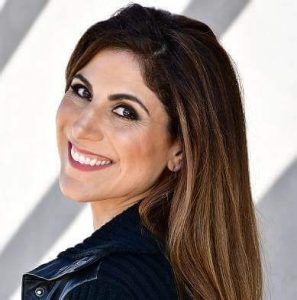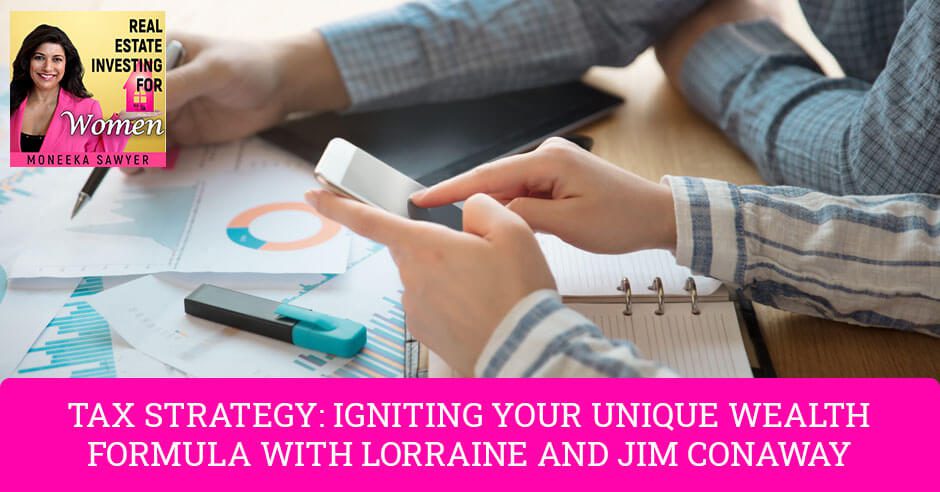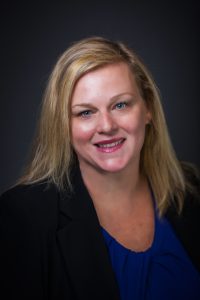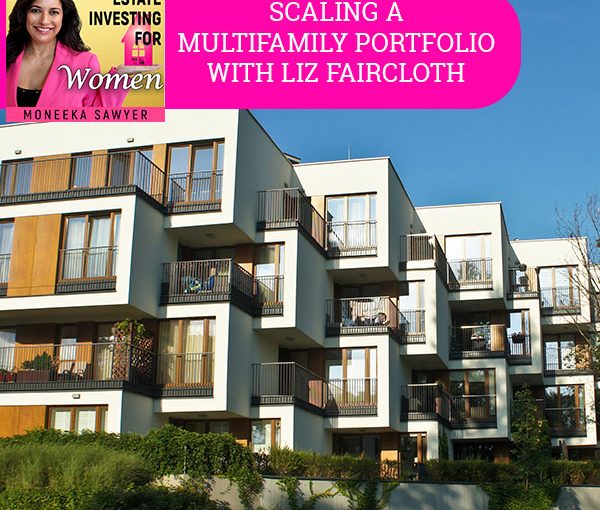Get Unlimited Private Money With Amy Mahjoory – Real Estate Women

Raising capital is an important part of starting a business. And private money is one way to get your real estate investments financed. In this episode, we examine how as Moneeka Sawyer deep dives into raising money with real estate investor and educator, Amy Mahjoory. Amy has helped thousands of real estate investors with private money, walking us through each step. From building relationships to crafting your pitch, Amy lets us have a look at her process. Tune in and learn more about building a real estate business right here.
—
Watch the episode here
Listen to the podcast here
Get Unlimited Private Money With Amy Mahjoory – Real Estate Women
The Golden Rule For Raising Capital
I am excited to welcome to the show, Amy Mahjoory. She is a real estate investor and educator, HGTV personality, bestselling author, and keynote speaker. Her life didn’t start in real estate. After fourteen years in Corporate America, she had her fill working for other people. Although she was a highly recognized global leader in procurement, logistics, and operations management for Dell Computers, she decided that a traditional education combined with the false security of a 9:00 to 5:00 was not producing the results she wanted.
Real estate was the game-changer. She has been investing in real estate over the last several years. During that time, she has raised well over $20 million in private money. As a result of her immediate success, she went on to resign from her corporate job to pursue her passion for real estate. Shortly thereafter, she signed a contract with HGTV and began coaching real estate investors all over the country on the same creative rapport and trust-building strategies, systems and scripts that she still uses in her business now. Here is the best part, all of this can be done without having to depend on friends and family members for private money. This is her new passion and focus.
She helps her students transform their minds so that they can feel confident raising private money. She takes the fear out of raising capital and breaks her systems down into a methodical and easy-to-follow system. Her greatest achievements go beyond what she has accomplished herself. Many people become successful in real estate, but her talent is helping others become successful themselves. She has a genuine interest in helping others succeed. Most of her success originates from her streamlined operations and proven systems. She changes people’s lives. Amy, welcome to the show.
How are you? It’s great to be here with that warm welcome.
This is what I love about you. Your bio is so much more about what you’ve done for others. It’s not all about, “I’ve accomplished that,” because you’ve accomplished quite a lot. It’s pretty amazing. Thank you for that. Can you talk a little bit about your story? How did you transition from corporate to entrepreneurship?
Surround yourself with people on a similar path. Believe in yourself, and you will do great things.
My background is very traditional. Like many people out there, I was raised to go to school and get good grades, get a job at a secured stable company, and collect my paycheck for the next 25 years until I retired. The transition for me was easy because once I realized real estate was my new path, I had goals and was committed. I invested in coaching and mentorship. Where it became challenging was the lack of support from my friends and family members, specifically my dad. That’s a whole other conversation.
For me, I’m a product of the system. A lot of people out there can relate to similar situations and losing friendships along the way. It’s always like, “Perseverance will prevail. Keep your head down. Surround yourself with people who are on a similar path. Believe in yourself and you will do great things.” For me, it was an easy transition because I knew I was going to do it. I was committed to doing it.
Some people are committed but they second guess. I love the power of, “I’m committed, even if my dad doesn’t like it.” Many of us are influenced by our families. “People may not like it. It doesn’t matter. I’m doing it.”
Once you know your role and you’re confident in who you are and what you’re doing, it makes that decision-making process so much easier. At the end of the day, I still have to do what’s right for me and my family while respecting my dad, for example. That’s why I believe so much in coaching. The reason I had so much immediate success was because of my coach. If I didn’t know what I was doing, I worked at the corporate for fourteen years, but they helped me with that fast track to success which was cool.
Talk to me a little bit more about overcoming the roadblocks that maybe family and friends put in front of you. A lot of us women are susceptible to that and experience that.
The hard part for me was I’m very sensitive. I wear my heart on my sleeve and I don’t like disappointing my parents, even as an adult. I always seek out my parents’ approval. I want them to be proud of me. They are now. My dad is my biggest cheerleader now. It was very hard for me, more so losing my two best girlfriends during that transition because I was so excited and passionate. I know real estate can be a game-changer for everyone. That’s why I coach and preach it. They didn’t want to hear it. Until this day, I still believe that I drove them away from me.
It was very hard. I cried for years. Even when I speak on stage, I share this example and I get emotional. However, I’ve also learned that friendships are seasonal. People come in and out of our lives for a reason and their purpose was served. I made a bunch of amazing friendships along the way. I never expected my entire inner and outer circle now to be other real estate investors, entrepreneurs and business owners. Our girls’ trips are masterminds. Don’t get me wrong, I still have my OGs. We have fun and go out. It’s just different.
For me, it’s the same way. When I do ladies’ weekend away, we’re ten real estate investors and professionals in that industry. Not a single one of us is an agent. Just because you’re in real estate does not mean that you need to be an agent. I want to emphasize that again. There are a lot of people in the industry that do a lot of this stuff around what we do. It’s so interesting because I remember when I got started with this show, I’m so passionate about real estate anyways, but it’s always been my side hustle. This is what brought me into this fear of learning more about real estate, expanding my own influence, and also my own learning. That’s why I keep going because I learned so much.

Private Money: Once you know your role and are confident in who you are and what you’re doing, the decision-making process becomes much easier.
Suddenly, I’m having these real estate conversations with all my friends. That’s not what we used to talk about before. People are getting a little bit uncomfortable. I had several friends that were like, “I’m totally inspired by you. I’m going to go get my real estate agent license.” I’m like, “No, that’s not what we’re talking about. We’re not talking about getting another job and not investing and not growing your own wealth, and doing that for other people. We’re talking about this.”
Over and over again, “Don’t get your license. Don’t spend all your time on a license. Go get a mentor, learn to be an investor.” I lost so many friends because they got tired of hearing, “Don’t spend all your time and money becoming an agent,” because I was pretty bullheaded about it. I can see what happens when you spend all that time and money doing that. It does not grow your wealth and freedom. In a lot of cases, it takes away your freedom. Some people want to do that. That’s great, but that’s not the strategy for becoming an investor necessarily. I had the same experience, lots of nights crying because people dumped me.
It’s part of the process and journey. We’re going to have the highs, lows, wins, losses, make money and lose it all. I had this conversation with a girl who was at my LA event. She was like, “I’m going to go get my license,” and I was like, “Why?” She said, “Don’t I need to?” I’m like, “No. Don’t get your license.”
For those of you who may not already know this, there are so many ways where we can still generate referral fees and additional income without being a realtor by referring people to realtors. I always believe in working smarter, not harder. I’m not going to spend time getting a license when I don’t need it to list my own properties. I don’t want to list someone else’s properties because that’s another job to your point.
The other thing is once you have a license, you have to hang it. You’re legally obligated to hang it. You have an obligation now to a broker. That broker is going to have expectations. Every year, you have to do your education to renew and to get your hours. You have to renew your license every four years. It’s been a long time since I had my license, so these numbers may be different and they’re different in different states, but there’s a lot involved in that.
In California and a lot of states, you have to disclose that you’re a realtor, which means you often lose offers because people don’t trust a realtor-buyer sometimes. I found that to be the case for me too. It was a complete hindrance in my business and took all this time and energy. I want to work 4 to 10 hours a month. That was a lot more time and energy that was getting put into my business that wasn’t necessary. Talk to us about your transition to HGTV. How did that happen? What did that do for you?
I did have a goal when I first started to be on TV. I didn’t share it with many people. I wanted my own show. I was in the middle of hiring a virtual assistant. She was 21 years old. I was surprised when she asked me, “What are your short and long-term goals?” I was like, “Who is this girl?” I loved it and appreciated it. I ended up hiring her and I said, “One of my goals is to get on TV,” and by having a voice. I always talk about word of mouth going a very long way. She responds with, “My mom knows a producer at HGTV, would you like an introduction?”
I said, “What show?” She said, “House Hunters,” which many of us know that show. I respectfully declined her offer because I thought to myself, “I don’t want to be on House Hunters. I want my own show.” Two days later, I thought to myself, “Amy, what are you doing? You wrote a book on networking. Get your foot into the door with this lady and see what happens.” That’s what I did. I had a snowball effect. I hit it off. I was on House Hunters. We did a four-part mini-series, but it’s cool because they broke the mold with me.
Everyone you encounter is a prospective private money lender.
In the 12 or 15 years at that time that they had been filming, they had never had an investor on the show. They showed my transition out of Corporate America into real estate on the show. My contractor walked through projects before, during and after. That was cool and it was great for credibility. The relationships, I still have and cherish until this day. I realized I don’t want my own show because it is a lot of work and that’s not a priority for me anymore.
For a long time, I thought I wanted my own show and then I realized there’s this thing. Ladies, this is relevant to you too. How many times are you shooting for something because you think it would be cool? You’re afraid of missing out. You want to have that credibility and whatever it is in your life that you’re looking for that lifts you, but so much that we drive towards is not serving our core values or serving our dreams. This is something that I’m focusing on now on the backside of the pandemic where I’ve been sitting at home for two years. I’ve had so much time to think about, “What is it that makes my heart sing?”
Traveling and speaking, I was gone every single weekend. I remember the year before the pandemic, I was home for six weekends out of the entire year because I was traveling. I miss my husband, my little dog, my family and my life, but I was doing it because it was what was expected, it gave me more credibility, got my voice and message out there, and all of those things, but it wasn’t doing it in a way that supported the bliss of my own life.
As we move forward, I’ve realized, “No, I don’t want a television show. I don’t want to be working that hard. I want to be working hard on the things that are going to reach my goals and are aligned with my own core values and the things that make me happy.” I love that you mentioned that because we can have so many opportunities. Which ones do we choose?
I hear you talking and I hear myself. We were the exact same. That’s the only reason I wrote the book. I wrote this bestselling book because all my friends were writing a book and I’m like, “That’s the next thing to do. I got to beat my friends. I got to be bigger and better.” Now, I love what I do and it’s the only thing I want to do. I’ve cut back on speaking and all these other things. I don’t care anymore. I want to do genuinely what makes me happy, but I also treat it as a business and capitalize on it. How do we do that?
Talk about what you do.
I never thought I would be a nationwide coach showing other investors all over the country how to raise private money. That’s what I do now. I was a leader at Dell, but I was never a manager of people. I was always an individual contributor. When I got into real estate, I never thought I would be hiring a team of twenty people and getting on stage and being on TV. I was super shy growing up. For the first eight years of my real estate career, investors kept saying, “How did you raise all this capital? You must have asked your friends and family.” I was like, “No, it’s the opposite because I’m so stubborn.”
Once they heard that out, they were like, “What list did you buy?” I have never bought a list to target private money lenders. If you have, great. I would love to hear how your experience was. I launched a coaching program a few years ago, once my daughter turned one because I wanted to be a soccer mom. Now, I get to still stay connected with investors all over the country from the comfort of my own home while changing their lives and showing them how to raise capital to get 100% funding for their deals. That’s my main focus now. I’m still an active investor so is my husband, commercial, residential and all that stuff, but now I’m a coach myself and it’s on one topic.

Private Money: We just want to do what genuinely makes us happy, but also treat it as a business and capitalize off it.
The topic that you focus on specifically is private money. I want you to dive a little bit deeper because the very first time that you and I connected, everything you said was like magic. I was like, “That’s so cool.” That’s why I wanted to bring you on. Tell us a little bit more about the private money angle. I know that the way that you approach it is different. You’re not going after friends and family. At least, in the beginning, you opted out of that.
I still don’t because I’m stubborn. If you guys get out there and you listen to podcasts and read books, you take other coaching programs, the majority, if not every real estate educator out there will say, “Raising capital is easy. Go ask your friends and family members.” What if you don’t want to? What if they’re not supportive? What if they’re not in a position to invest? How do we get out there and build rapport and trust with strangers?
I’m talking about your Uber driver, cashiers at a grocery store, people at airports, church communities, sporting events, happy hour, anyone and everyone you encounter is a perspective private money lender. How do we make those mindset shifts? Start planting seeds to open up those conversations to coffee talks where you get them to ultimately invest with you. What I teach is raising capital from people who aren’t even a part of your inner circle. I have students who want to target their friends and family members, and I show them how to have those conversations as well.
I have taken her online course. It’s phenomenal. Ladies, you know that I will not recommend a course unless I’ve vetted and liked it. Many of you asked me, “Moneeka, if you’re only working 4 to 10 hours a month on your real estate business, what’s all this other time? Why are you always so busy?” First of all, this show takes a huge amount of my time because I want it to be the very best for you, but the other thing is I will not recommend anything to you that I have not been through myself.
I take a lot of coursework, not that I need it. I’m not doing this for me. I’ve got my business, but I do love to learn and I do want to get to know the people that I am doing business and partnering with, so I vet their courses. Over the last few years, I’ve vetted twenty courses and only two that I have recommended. It’s a lot of work that goes into that. I’ve never shared this before, but this is what I do. If I’m going to recommend it to you, I’ve been through it or one of you have been through it.
I meet with some of you and you tell me, “I have this great coach. I’ve got a great program.” That’s how I met Mark Willis. Someone else recommended him to me because they loved working with him. You’ve heard from him a few times. A lot of it is recommendations and coursework. Many times, I’ve done the investing with them before I’ll recommend them. I don’t vet everybody that’s on the show and that we do courses for, but I will tell you if I’ve gone through their coursework and I have with Amy. That allows you to feel a little bit more comfortable about the recommendation. I do want to be clear, I don’t vet everybody on the show.
Some of the people out there who know me or many of you who may not know me, I’m raw, real and direct. I’m very approachable and easy to talk to. I am not scripted. It’s a proven system. It’s stuff that I’ve been doing for many years. I’m tested and fine-tuned. If you are coachable and can follow steps, I’ll hand you everything you need on a silver platter, “Do this, call this person, say that. Call me back when they do this.” You will have success and can raise unlimited capital if that’s aligned with your goals. All of our goals are different.
Having money is a good problem to have.
It’s cool because, with private money, there are endless opportunities. You don’t have to flip or wholesale. Buy five rental properties tomorrow with private money. Start a fund and invest in commercial syndication. Invest in a multifamily deal. There is so much we can do. I’ve got mortgage brokers and realtors who learn how to raise capital because all they want to do is generate referral fees for their investor clients. Having money is a good problem to have. Let’s educate people on why they should invest with us.
Do you find that when you raise the money, you should have some idea of where it’s going to go before you raise the money? They’re excited about giving you money and then you stalled.
The answer is no, we do not need to have a deal right now. We don’t want to wait until we have a deal. For those of you who are looking for a deal, whatever your strategy is, we want to be looking for deals and raising money at the same time. Even though I’m telling you that you’re going to raise money from your Uber driver, which is what I did and what you can do as well, it is rapport-based lending. We’re building a relationship and developing trust. You can do this in as little as three weeks, but you don’t want to wait until you have a property under contract. You want to be proactive in that skillset.
You’ve told us a little bit about what makes your course different. You’re talking about not going to friends and family, and doing the fundraise simultaneously. There are some other special things about your course.
I know a lot of big and small name educators out there and nobody teaches private money the way I do. No one teaches how to get creative and think outside the box. I have over 54 different creative trust and rapport-building strategies scripts and templates. My course is a done for you system. I give you all twelve of my credibility pieces, all my contracts, and my list of FAQs. What’s cool about the program is the online portion is eight different modules. Each module is built upon the previous one. In order to have success, you want to come and watch the videos, and do the action items in order of priority because it all means to one another.
I don’t guarantee success and I never will. I have a 90-day money-back guarantee because I can and it works if you follow the system. What’s also unique about my program is I give you lifelong access. Not just to your online curriculum which I’m also fine-tuning and tweaking because I’m still an active investor, but you get lifelong coaching with me that does not expire. I’m not going to call you six months later and be like, “Your coaching is expired. Would you like to reinvest?” That’s it. One investment, lifetime access. It’s a no-brainer.
It’s unheard of. While we’re talking about the course and since you ladies already know a little bit about it, Amy and I are doing a few things together for you. We want to do a webinar. We’re calling the webinar Grow and Scale Your Real Estate Empire with Private Money. We’re going to be doing that together so you can meet Amy, ask questions live, and all of that stuff. If you want to join us, go to BlissfulInvestor.com/PMWebinar. The webinar is going to be held on Thursday, April 7th, 2022 from 1:00 to 2:30 Pacific time. Let’s talk about that a little bit more. What are we going to be covering, then I’ll talk more about the coursework.
My webinars are pretty insightful and eye-opening. People are walking away mind blown, which is cool. We have plenty of time in the end for Q and A so I got you. I always keep it simple and to the point. I always focus on three things. Number one, what is private money? Who are we targeting? Who aren’t we targeting? Where is it? Number three, how do we obtain it? How do we get our hands on it?

Private Money: Follow proven systems, be coachable, and you will have success.
When you understand all three of those points, you can obtain 100% funding for your deals moving forward. This is regardless of your experience, credit, and whether or not you’re doing this part-time or full-time. None of that matters. Follow these proven systems, be coachable, and you will have success. We’ll get into some of those strategies during the webinars, so make sure you guys attend.
Grow and Scale Your Real Estate Empire with Private Money, Thursday, April 7th, 2022, 1:00 to 2:30. Go to BlissfulInvestor.com/PMWebinar. Some of you may be like, “I’m all-in. I want to do the course,” join us for the webinar also. If you want to do that, Amy’s already shared a little bit about the coursework. Do you want to give us a few more details before I give them some links?
One of the first things I have my students do is start building our foundation and getting ready to raise capital as early as module one. One of the key takeaways from module one is what I refer to as our Four-Second Power Pitch. In four seconds, you are going to explain to anyone and everyone, the minute you leave your house, who you are and what you do by dangling that carrot and getting them to ask you more questions about it.
The Four-Second Power Pitch is how I got Larry, a retired physician who was my Uber driver to become my money lender. That’s going to be step one. As we build our foundation, and there are a lot of things that go with building a foundation, how do we start to take action? It’s with your Four-Second Power Pitch. The minute you leave your house, anyone you encounter is a prospective private money lender. What do you say? It’s your Four-Second Power Pitch.
For our ladies that are subscribed to EXTRA, she’s going to give us a Four-Second Power Pitch in EXTRA. In that first module, she’ll be covering that. That’s the foundational building block. That’s where we start. From there, there’s a world of information in the course.
That’s opening up the door to having ongoing conversations with each of your private money lenders. Step two is, how do we take action? How do we find the people to book these coffee talks with? At these coffee talks, what do we even say to them? That’s going to get into all your credibility pieces and all the content that I give you. Don’t worry about what that looks like.
If you are in and ready to go, you can get her course. Go to BlissfulInvestor.com/PrivateMoney. That’s for the full-pay option. Her courses are insanely inexpensive. I can’t believe that she offers all this information for this little amount. It’s a good deal. If you can’t make the full payments right away, you want to do a payment plan, she offers that. She wants to make sure that everybody can get the advantages of this coursework. If you want to do a payment plan, go to BlissfulInvestor.com/PrivateMoneyEasy. Is there anything else you wanted to add?
I don’t think so. It’s a lot of fun. It’s a tight-knit community. It’s like a family. We got each other’s backs. A lot of us develop friendships and end up hanging out outside of our work and coaching environment, but you think about what if you could raise six figures in as little as 21 days. If you can raise six figures, how much more can you raise? What would your business and life look like?
You never know who you’re talking to. You never know who is standing in front of you. Be respectful, and follow the golden rule.
You can sit out there and go read a bunch of books and listen to a hundred podcasts, but why not leverage from my years of experience, lessons learned and mistakes? Stop posting desperately on Facebook groups. I see this all the time. Get the system in place and position yourself as a polished professional poised for aggressive growth. Get out there and do everything you’ve ever dreamed of when it comes to growing your real estate business. You can do it.
That’s the thing. Us real estate investors, what is it that we love? Leverage. Leverage when we’re purchasing and other people’s information. I love that you said it that way. Leverage her years of experience to fast-track yourself. Thank you so much for all that you offered in this part of the show.
It was great being here. Thank you so much for the opportunity to chat with you and your audience. I look forward to coming back.
We got more on EXTRA but before we move on to that, let’s talk about our three Rapid-fire questions. The first one is, what is the super tip on getting started investing in real estate?
Number one is to commit to it and decide that, whether or not it’s for you. Commit and then set your goals up.
What is number two? What is the strategy for being successful in real estate investing?
Once we have our goal, because thoughts expand, number two is to get after it. Get out there and take action. For example, take my Four-Second Power Pitch and start implementing it every single day. Practice it at home. Don’t just sit there and talk about it and do it. That’s why I could do a lot of these implementation workshops. We can sit here and talk about it and take a bunch of notes that you’re going to throw in the garbage, or we can meet up live and start taking action and see results. Just do it.
What is one daily practice that you use that you would say contributes to your personal success?
For me, it was treating anyone and everyone I encounter the minute I leave my house as an equal and specifically private money lender. I have struggled in the past with anger management. I had an anger management journal. I had a very low tolerance for poor customer service regardless of the industry. I’m comfortable saying no. I would go off on people. I would be rude to them if they were rude back.

Private Money: Anyone and everyone you encounter, treat them as equals or better yet, target them as private money lenders.
Once I decided to commit to being a real estate investor and a business owner, I said to myself, “You can’t talk to people this way. You never know who you’re talking to. You never know who is standing in front of you.” Be respectful, the golden rule from here on out. Anyone and everyone you encounter, treat them as equal and better yet, target them as private money lenders. How do you do that? My Four-Second Power Pitch. Everything is very closely linked to one another.
One of the things is that how we do anything is how we do everything. If you have to improve yourself or your business, you’re improving yourself for your life. That’s what blissful investing is all about. It’s who are you getting to become as you’re building your wealth because that’s the person that you are going to be when you’re wealthy. As you improve yourself, you’re treating people with a little bit more respect or a lot more respect whatever. That’s going to show up in every area of your life.
It’s going to show up in how you bring up your children. Our businesses help us to grow. They help us to become a better version of ourselves. I love that example. Nobody has ever admitted something like that on this show but it’s so amazing. Being vulnerable and allowing people to see that we all grow is a perfect example of that.
Thank you. I had a therapy session. I got personal and professional coaches. I’m like all of you. I’m still an investor and a student. All I’m doing with you is sharing the secrets behind some of my success. I’ve had plenty of failures too. What you choose to do with it is on you. I invite you to consider taking action, invest in coaching whether it’s with me or someone else, and start seeing results sooner than later.
Join us for our webinar. You can get to know Amy more. I always love meeting with you, Ladies. I’m trying to do this once a month. It’s like a community. Let’s get together. Several of you come to every single webinar, so I’m getting to know you. I’m loving that. Again, it’s on Thursday, April 7th, 2022 from 1:00 to 2:30 Pacific time, go to BlissfulInvestor.com/PMWebinar. Come join us for that. We’ve got more.
Stay tuned for EXTRA. We’re going to be talking about the Four-Second Power Pitch. You get that for free if you are subscribed to EXTRA. If you’re not subscribed to EXTRA, but would like to be, this might be the time. Go to RealEstateInvestingForWomenEXTRA.com. You get the first seven days for free. For those of you that are leaving Amy and me now, thank you so much for joining us. I always love spending time with you and I look forward to next time. Until then, remember, goals without action are just dreams. Get out there, take action, and create the life your heart deeply desires. I’ll see you soon.
Important Links
- Amy Mahjoory
- BlissfulInvestor.com/PMWebinar
- BlissfulInvestor.com/PrivateMoney
- BlissfulInvestor.com/PrivateMoneyEasy
- RealEstateInvestingForWomenEXTRA.com
About Amy Mahjoory
 I’m a Real Estate Investor & Educator, Best Selling Author, HGTV Personality & Keynote Speaker who built my business by Networking w/ A Purpose!
I’m a Real Estate Investor & Educator, Best Selling Author, HGTV Personality & Keynote Speaker who built my business by Networking w/ A Purpose!
I am lucky to be able to travel the country, doing what I want – when I want, with who I want.
After building multiple businesses and through many lessons learned, I am able to enjoy my time coaching and mentoring real estate investors all over the country on how they too can grow and scale their real estate business by CONFIDENTLY raising private money!
The most important concept I teach is that with the right attitude, anything is possible.
I was born and raised in the midwest in one of the tightest families you’ll ever meet!
My mom and her two sisters married my dad and his two brothers before immigrating to America and no, none of it was arranged. They decided to buy homes within three miles of one another which is where they raised all of us! Although I technically have one brother, I always say that I am one of seven since I have five double cousins, we all look the same and we grew up within three miles of one another.
After attending undergrad at Michigan State University, I moved away from home for the first time to Austin, Texas where I landed a job working for Dell Inc. After working in Corporate America for over fourteen years, I was doing well, but felt like my true potential was elsewhere. I was completely burnt out and had no passion for the work I was doing. I knew I needed a change.
During my spare time, I was glued to all of those home renovation shows. I absolutely loved the idea of taking an old dumpy house and turning it into something new and modern!
Although it may have sounded a bit ambitious and even unrealistic, especially since I had no previous knowledge of the real estate market, my mind was set! I was on a brand new mission prepared to learn how I too could learn how to buy, renovate and then sell distressed properties.
In my hunt for quality real estate investing education, I found mentors Than Merrill, Paul Esajian and JD Esajian from A&E’s hit TV show, Flip This House. With their ongoing support, guidance and trust, my very first company was born.
______________________________________
To listen to the EXTRA portion of this show go to RealEstateInvestingForWomenExtra.com
To see this program in video:
Search on Roku for Real Estate Investing 4 Women or go to this link: https://blissfulinvestor.com/biroku
On YouTube go to Real Estate Investing for Women
Moneeka Sawyer is often described as one of the most blissful people you will ever meet. She has been investing in Real Estate for over 20 years, so has been through all the different cycles of the market. Still, she has turned $10,000 into over $5,000,000, working only 5-10 hours per MONTH with very little stress.
While building her multi-million dollar business, she has traveled to over 55 countries, dances every single day, supports causes that are important to her, and spends lots of time with her husband of over 20 years.
She is the international best-selling author of the multiple award-winning books “Choose Bliss: The Power and Practice of Joy and Contentment” and “Real Estate Investing for Women: Expert Conversations to Increase Wealth and Happiness the Blissful Way.”
Moneeka has been featured on stages including Carnegie Hall and Nasdaq, radio, podcasts such as Achieve Your Goals with Hal Elrod, and TV stations including ABC, CBS, FOX, and the CW, impacting over 150 million people.
Tax Strategy: Igniting Your Unique Wealth Formula With Lorraine And Jim Conaway

Your CPAs are your defense players; they’re defending the goal. Your tax strategists are the ones putting the points on the board. They make sure that you’re using the right and most efficient strategies. Join Moneeka Sawyer as she talks to Lorraine and Jim Conaway about tax strategies. They believe that success is truly about education, support, and the art of supercharging your unique style of wealth accumulation. Find out the difference between a CPA and a tax strategist. Discover the process and learn how they evaluate your taxes today!
—
Watch the episode here
Listen to the podcast here
Tax Strategy: Igniting Your Unique Wealth Formula With Lorraine And Jim Conaway
Real Estate Investing For Women
Using their extensive experience, knowledge and success in the world of tax strategies, real estate investing and other wealth vehicles, Jim and Lorraine used their straightforward, big-hearted style to guide thousands to ignite their unique wealth formula. With decades of success, designing and implementing customized wealth solutions, they appreciate that success is truly about education, support and the art of supercharging your unique style of wealth accumulation.
—
Jim and Lorraine, welcome to the show. It’s nice to see you.
It’s great to be here. Thank you.
We’re excited.
Lorraine has been on this show before. I’ve met Jim several times. We’re all in a mastermind together. I was so excited to share the two of them. Lorraine is so brilliant and shared such good stuff about the CARES Act. They’re such an incredible power couple. The 1 plus 1 does not equal 2 and equals 11. That is true. I’m so happy to have both of you with us. Let’s start with a little bit about the story of how you put this company together. You cover a lot of good stuff like all sorts of strategies around real estate. I remember when I first talked to Lorraine, my first thought was, “Where have you been all my life?” You talk about all these different strategies. The one that I am engaging you for is taxes. Let’s talk about how that piece started for you.
You would think that being a tax expert, a CPA, would make you a tax strategist. That is not the case.
It organically came together. We met in the business.
My first thought was, “Where has she been all my life?”
In the business, years ago, we were working at an insurance company. We started our company in 1996. We worked for ten years side by side with the CPA. Along the way, we started investing in real estate. My father is a contractor. He always had real estate. We had the real estate going on the side. We had our business working. We’re learning about taxes and finding that there was an enormous amount of money in the tax return. I was frustrated like, “Why are people talking about this?” Even in our situation, when we got our taxes done, our CPA said, “You could have saved $18,000 if you had this type of structure.” We’re like, “You tell me after the fact.”

Tax Strategy: Think of your CPA as your defense player; they’re preventing points by defending the goal. They’re not putting points on the board. The tax strategists are.
We have to spread the word, educate people and let them know that there are better ways of doing things. That you could keep much more money in your pocket and then get the education on real estate, not just investing but understanding how to maximize your real estate portfolio feeding in the tax strategy with the real estate and business. We’re business owners and entrepreneurs. Over the last few decades, it all came together like a recipe going, “This tastes good.”
You look at taxes differently. You are business owners. You two are not CPAs. You have a CPA team. You marry the business mind with the CPA mind, which I love. Talk to us a little bit more about what makes you or your team different from other accountants.
I’m going to jump in here and dovetail into something that Lorraine talked about. That was how we came to be about how we are. We learned by working side by side with CPA and learned an enormous amount working with that man and his practice. What we found was that by doing the tax strategy, we were having a greater impact than we were working with people’s assets. We learned to turn our world upside down and work from the tax down. What makes us different? Is there isn’t a class out there? There’s not a designation out there that says, “You’re a tax strategist.” This is where people disconnect. You would think that being a tax expert, a CPA would make them naturally a tax strategist. That is decidedly not the case.
My analogy is a sports analogy. Think of your CPA as your defense player. They’re preventing points by defending the goal. If you think about their language, that’s how they operate. “Can I defend this with the IRS? Does that make sense? Can we justify it?” Those are the words that you hear from them. They’re defense players. They’re not putting points on the board though. That’s our job. If you’re using the soccer analogy, think of your CPA as the goalie. Think of us as the kicker, the point, the guy that gets the ball and puts it into the other net to score points.
We came about how we are by organic growth, most of it from our painful experience. When you’re trying new recipes in the kitchen, that’s always a mess in the kitchen. What our clients get to enjoy is the fact that the recipes are all nicely laminated in cards. We’ve gone through. We know how long to leave things in the oven. The biggest difference is we are the people that are putting the strategies in place before the taxes.
Other people have brought it to our attention that said to us, “Do you know why you’re unique and why you’re different and why you have success?” I’m like, “Tell me why.” They say, “It’s because we focus on the implementation.” When you meet with somebody and they said, “You could get an entity, maybe do a cost sag on your real estate, deduct a certain way or your accounting, £6,000 on a vehicle and all of these things.” What happens is there’s a lot of information out there like on the internet. It’s like, “Who do I trust? Where do I go? What is the right fee?”
It’s like, “I get an entity. What’s the state that I live in? If I get an LLC, is it a partnership? Is it a disqualified partnership? Do I file as a SEVIS or C corp?” There are all these other questions that people are left with going, “I got information but who has time to sit with me, hold my hand and say, ‘This is too complicated. It’s too much. My CPA tells me to get an escort but my attorney tells me to get an LLC. Which one is right?’” What we like to do is get both parties on a joint call together and discuss it. Let’s get all on the same page. We’re advocates about teams, getting the right team on your side, working together collaboratively and not having to redo your strategy and focus on implementation. Almost all of our time is focused on implementing the strategies.
What I love is that if you’re working with a tax strategist, you have all of the team members available to you. They all understand similar strategies and are having conversations. I’m not talking to my lawyer bringing information to my CPA. I’m not playing the middleman. With me not knowing what I’m talking about in the first place, which is why I need them. We’ve got a middleman that’s educated, doing it themselves and understands the process.
Don’t treat people based on their checking accounts. Treat people based on who they are and provide as much value as possible.
In the past years, I’ve been using a tax attorney. This speaks to what Jim was talking about. The reason I used a tax attorney is that he’s on my side, not on the IRS’ side. He’s not playing defense. He’s playing business coordinator for me. In part of what he does for me if I were to ever get audited, as he represents me in court and that thing, they handled that whole picture. Jim, what you were saying about how we’re not playing defense rationally doing an implementation. You’re making the goals. How does that work? You are a CPA firm. Their responsibility is to the IRS. Could you speak to that a little bit more?
In my next appointment, I’m going to be sitting down with a CPA who only has several years of experience in advanced planning. I’m going to be sitting with him to review a tax strategy for a client. What I do is cook up all the good ideas that would apply to this client. We sit with our CPAs and edit them. “This would work but less of it. This would work, let’s do more of it. This won’t work at all. This works brilliantly.” We go through and do the checklist. When we do that, we have a tested strategy. We also put it in writing. The client has something to hold on to. I want to do 1, 2, 3, 4, 5, 6, 7, 8 different strategies.
I’ve got the rules and description. I understand it. If I want to read the document, most of our clients browse it. They don’t read it. They have a deliverable that they understand what the tax team is supposed to do. Here’s a critical element. The tax team also gets a copy of it so they understand what the taxpayer needs. If you were our client and we’re looking forward to working with you, you would get a deliverable that tells you all the strategies.
The tax team gets the same deliverable so that when they’re looking over the tax organizers, there are 50 pages of questions that nobody knows how to answer. You do your best and send it down. Our tax people look at this stuff. They see the strategy and don’t see the information they need. They know there’s a disconnect. Reach out to the client and ask them for the information. “How big is your house?” “It’s this big.” “How big is your studio with the lovely rice paper screen in the background?”

Tax Strategy: Tax strategists got the rules and descriptions. Their clients have a deliverable, so they understand what the tax team is supposed to do.
That all goes in there. You can see immediately that there’s an enormous amount of connection. Imagine for a minute that we’re sitting with you as our fresh client and we suggest, “Your tax strategy calls for a C corporation. Do we have a network partner that knows how to set up C corporations and that’s their focus and they’re good at it?” They’re already exercised and working with us as part of the team. That’s the thing that helps with the implementation. Everyone in the network that’s already been through the process knows. You don’t have to explain it. It’s one and done. Once you go, “I approve of this strategy,” then it’s off to the races. Everybody knows how to do what they got to do.
In the case of an audit, do you support your clients? How does that look?
What it looks like is we take a 40-year CPA and put that 40-year CPA between us and the bad guys. That 40-year CPA will handle most audit questions. Remember, every strategy is A) Legal, B) Approved, C) All the documentation is in the strategy. It’s like, “Here’s the homework. Where’s the mileage log? Where’s this log? Where’s that log?” We collect the data and put it together. We go and handle the audit. You should also know, this is one of my favorite questions is it a red flag?
I hear this all the time. When you get, “That’s a red flag,” don’t do and write that off. That makes your return auditable. Many right eyes I haven’t taken because of that.
Not true. It’s a myth. The thing that is more likely to cause an audit than anything else is the size of the numbers on your tax return. The larger the numbers, the more likely you’re going to be audited. Think about it. Logic. If you are a tax auditor-manager person, would you audit somebody who has had a $50,000 tax return? Would you audit the guy with a $500,000 tax return? It’s $500,000 all the time. What this tells us is that we have, roughly speaking, a 3% chance of an audit. If you went Vegas and you knew you could pull that handle on the one-armed bandit and you had a 97% chance of winning, how often would you be pulling that enamel?” We don’t want to push the IRS but we want to do everything that we’re legally entitled to. That’s what the strategy is all about.
It’s about following the rules. Another thing that I see is that when there are errors like we had somebody who doubled expense something or there’s not a matching item when it’s not matching, the IRS is going, “Why is this not matching? You got 1099 for X amount of dollars but you reported a different number.” Those types of things are errors. One thing I would say though, from my experience is that people who have very clean accounting and books either have a bookkeeper or they’re doing it themselves but they’re using like a QuickBooks process.
You get clean PNLs, no commingling of money in your corporate checking or your real estate, keeping the real estate separate from your checking account, you pay your groceries and your bills. You got to keep your real estate separate. When you have clean accounting then it’s so much easier process than going through an audit. When it’s commingled and muddy like that, it’s a nightmare.
Do you help people to understand what all of those things are? What is it exactly that we need to avoid this idea of commingling and stuff like that? It’s bigger than the account that you pay for your groceries and business account. I’ve got five different businesses. There are intricacies to that too. Do you help guide people on how to make that last money?
Typically, we’ll ask people, “Do you have a bookkeeper? Do you have a separate checking account?” Starting with the basics of having a separate checking account. When people ask us about those questions, we will go through them and go deep. When they don’t ask us, it’s because we’re covering so much material and education. Everybody’s so different. Some people have different specific needs and goals that they want to know answers to. They might be selling a property and are like, “I don’t want to do 1031,” or whatever it is. It’s all over the map.
We will help the people as much as we’re able to help the people. What we would do normally with bookkeeping is we’ll bring in somebody who is a CFO-level bookkeeper, have them audit the books and let us know exactly what they see. I spoke with a client. In 2021, we brought in our bookkeeper who was trying to be nice to the client, politely pointed out that there were some small changes that they needed to make in their bookkeeping. It turned out that was $540,000 worth of loss carryforwards that they had never reported. The bookkeeper found this error. They save taxes on over $500,000. It can be very valuable to have somebody go through and make sure the books are nice and neat, somebody with an accounting background, not just a bookkeeper.
Tell us what kind of person should engage you. Does it matter where a person lives?
It doesn’t matter where a person lives. They can live in any of the 50 states. We’re nationwide.
People who are alive. That’s the first criteria.
Typically, the people who have more complex and multiple returns have greater value. The more opportunity on saving taxes is the greater value. If you could save $500,000 in taxes, that’s great but there’s no minimum. We work with everybody.
Lorraine and I went through a season where we weren’t financially successful. This is way back when we were quite young. We remember what it was like and how it was when we got treated well and we didn’t get treated well. We committed that we weren’t going to treat people based on their checking accounts. We were going to treat people based on who they were and provide as much value as possible.
Let’s talk about costs. What is this going to cost? Are you going to give blissful investors a special deal?
To do an evaluation takes us quite a bit of work. The process is we reach out and we’re going to have the link. You go to the link. It’ll be a pink link.
They made a landing page especially for my community. As we were talking about it in the green room, I was like, “It has to be pink.” That’s what that reference is.
They will have the opportunity to raise their hand and say, “I would like to have my taxes evaluated to see if there’s any money to be saved.” The evaluation does take time and effort. It’s normally $497. How much are we charging the blissful investors?
We’ve discounted it to $97.
Save taxes so you can turn around and invest that money.
That’s the deal you ladies are getting. When you go to the website, which is BlissfulInvestor.com/taxstrategy, that’s where you would get the Last-Minute Tax Deductions, which is the free report.
It’s 2021 and they will be useful for 2022.
You also get the added benefit of 80% off of an actual consultation with them. Is there anything else you wanted to add before we go into the three rapid-fire questions?
I’m looking forward to people saving taxes so they can turn around and invest the money.
Find more real estate.
That’s the big thing. That money is saved for our businesses. Grow your real estate fempire. That’s what I’m calling it. Become a real estate mogul. It’s good to understand that this is a business strategy. Thank you for mentioning that. Here are our three rapid-fire questions. What’s a super tip on getting started in real estate investing?
The first thing is you have to understand that getting started in real estate means moving. I don’t care what you do. There’s no shortcut. It’s getting moving. If you’re in action, you can do something like wholesaling or sandwich places. You can save money and buy income properties. You can use your tax savings to help you save for your real estate. Get in motion. That’s the bottom line.
What is one strategy for being successful in real estate investing?
Saying yes to your wife.
That’s good advice. We need the guys to read this.
It’s managing the manager. Before you manage the manager, do some serious due diligence and find the right manager because you can have the most amazing property in the great area and grants and have terrible management. If the management is not responsive to the tenant, the tenant is going to move out. You’re going to have a vacancy and then the property is going to go downhill. Management is crucial and critical. Managing the manager is important and making sure you have the right manager.
Make sure that they’re going to be responsive to you, the investor.
You guys don’t do turnkey properties but you help people to find them to be working with teams that find you properties that have leverage. In real estate, we love to talk about leverage. Part of that leverage is our relationships. If you’re going with a turnkey operator or something like that, they have many properties so they can put pressure on the managers if things start to go sideways.
We do have vendors with properties with turnkey. We have already done the due diligence and have our properties with these vendors.

Tax Strategy: The thing that is more likely to cause an audit than anything else is the size of the numbers on your tax return. The larger the numbers, the more likely you’re going to be audited.
What was the cash-on-cash return for that one investor?
It was about a 20% cash-on-cash return. We also have amazing non-recourse lenders, which we can explain at another time.
We have to talk much more. We’ve got lending, turnkey, notes, self-directed IRAs and so many amazing things. This is why I was like, “Lorraine, where have you been all my life?” They’ve got all the different pieces and you’ve got access to them in one place.
The network has developed over the decades. Somebody said to me, “Do you know how valuable your address book is?” We don’t have address books but what I’m talking about is your network, your Rolodex. I was like, “I didn’t pay attention because I’ve been doing my job and working in expanding and getting all the pieces and all the people to bring it all together to create great success.”
I like both of you to answer this. What is one practice that you do daily that contributes to your success?
For me, it’s saying, “Yes, dear,” multiple times a day and staying very close to our real estate vendors and various network partners.
We don’t want to butt heads. Although we both meet with people, we have different roles in our business and working together. One thing for me is I focus on the critical things that I have to get done for the day before I even open an email. I have to get control of each day. Stay focused and accomplish what I said I was going to accomplish.
Thank you for that. We do have EXTRA. We’re going to be talking about the Augusta rule, which is a tax write-off that nobody seems to know about. It’s so interesting because when I did my tax evaluation, Lorraine was like, “You’ve heard about the Augusta rule. Why are you not using it?” I was like, “Can I use it? I’m just a little guy. What is this?” It could have saved me $20,000 in taxes. We ran the numbers. I’m super excited about it. It’s simple and available to many different people that wouldn’t expect it. That’s one of those little strategies that is often missed. It shouldn’t be. We’re going to talk in detail about that in EXTRA. Did you want to add anything to that?
No. I’m looking forward to speaking about that in your EXTRA.
Ladies, if you are subscribed to EXTRA, stay tuned. You’ll get to know about the Augusta rule. If you would like to subscribe to EXTRA but you have not yet, go to RealEstateInvestingForWomenEXTRA.com. The first seven days are free. Get in there. Seriously, this is the time to do it. If you don’t love it after seven days and you’ve gone through the content, you get to make that choice. For those of you that are leaving Jim, Lorraine and me, thank you so much for joining us for this portion of the show. I hope you enjoyed it and got great value. I look forward to seeing you next time. Until then. Remember, goals without action are just dreams. Get out there, take action and create the life your heart deeply desires. I’ll see you soon. Bye.
Important Links
- Jim Conaway and Lorraine Conaway
- Lorraine Conaway – Previous Episode
- BlissfulInvestor.com/taxstrategy
- RealEstateInvestingForWomenEXTRA.com
______________________________________
To listen to the EXTRA portion of this show go to RealEstateInvestingForWomenExtra.com
To see this program in video:
Search on Roku for Real Estate Investing 4 Women or go to this link: https://blissfulinvestor.com/biroku
On YouTube go to Real Estate Investing for Women
Moneeka Sawyer is often described as one of the most blissful people you will ever meet. She has been investing in Real Estate for over 20 years, so has been through all the different cycles of the market. Still, she has turned $10,000 into over $5,000,000, working only 5-10 hours per MONTH with very little stress.
While building her multi-million dollar business, she has traveled to over 55 countries, dances every single day, supports causes that are important to her, and spends lots of time with her husband of over 20 years.
She is the international best-selling author of the multiple award-winning books “Choose Bliss: The Power and Practice of Joy and Contentment” and “Real Estate Investing for Women: Expert Conversations to Increase Wealth and Happiness the Blissful Way.”
Moneeka has been featured on stages including Carnegie Hall and Nasdaq, radio, podcasts such as Achieve Your Goals with Hal Elrod, and TV stations including ABC, CBS, FOX, and the CW, impacting over 150 million people.
Syndication Series #1: How To Evaluate A Syndication Deal With Dr. Sam Giordano

Everything starts with learning. You can excel really great in one thing if you are determined to know how it works. In real estate, it’s the same case. You have to strive for your goals. Moneeka Sawyer sits down for a conversation with Dr. Sam Giordano on evaluating syndication deals. Where should you be investing? How do you find the right process that works for you? How do you evaluate a syndication opportunity? Dr. Giordano answers these questions and more! Plus, he offers a spreadsheet that could just be the one to help you up your syndication game. So listen to this episode and enjoy the process of learning and growing.
—
Watch the episode here
Listen to the podcast here
Syndication Series #1: How To Evaluate A Syndication Deal With Dr. Sam Giordano
Real Estate Investing For Women
I am so excited because we are going to do something a little bit different. One of the things that I’ve been thinking is that as we’ve gone through the years of this show, every single time I do a show, we record something new. There’s a new idea, a new strategy or a new opportunity, and I love that. It’s very exciting to me. I know many of you love that too. What concerns me a little bit is that I feel like I might be confusing you.
Instead of giving you an opportunity to go deep and to learn strategies so that you can make a decision whether that strategy is right for you or not, I just keep presenting new opportunities, which is confusing for me hearing them like I think, “That’s a good idea,” and I know that if I wasn’t already well implanted into some strategies that I’m already using, it could be confusing for me.
In order to support you, ladies, to actually start taking action and grow your portfolio and become super-wealthy and blissful, I’ve decided that I’m going to start doing some different series. Each series is going to be focused on a strategy that I’ve heard a lot about from you. You’ve asked many questions and you want more information. I’ve brought on several guests onto the show already about that topic because of your interest in it.
What I’m going to do is create some of the series that will be a deep dive into that particular topic. Sometimes, it’s hard to go back and re-listen to episodes that are hard to find on iTunes and a lot of the podcasting formats, and even on my website. There might be so many that you don’t know what to listen to.
What I’m going to do is go back and compile the best episodes into a series. If there are any missing parts or holes, then I’ll record a new episode or two to fill those holes. Either it’ll be a new person, maybe I’ll do something, but my strategy is it won’t always be a series and it won’t always be replays. This is to support you as we move forward from here to help you to start taking action and feel like you’re getting what you need to create success.
I’m not just here talking about real estate. I’m here to help you build the blissful life that you dream about. That’s my goal and that’s why I’m creating this series. I’m now starting the first series and I’m excited about it. We are going to be having some reruns and that may irritate some of you. If you don’t like this series idea, please email me and let me know. If you love this series idea, please email me and let me know because I’m here to serve you. I want to make sure you’re taken care of and that I’m providing what you want. I’ve got all my great ideas, but they don’t mean anything if you don’t love them. This is the time for you to tell me what you need so that I can be of service to you.
Here is the first series that we’re doing. Welcome to the Syndication Series. We’ve had many people on this show talking about syndication. Some of you are still a little bit confused about what syndication means. What it means is someone has a big project and they need to get money for that project. What they do is they go out there and find investors to invest in their project. That’s called syndication.
If it’s actual syndication that is legal, they have to file with the SEC. There are some definite legal things that they have to do, but the basic idea is they’re taking money to help invest in a project, either to buy the property, build the property or refurb the property. That is what that very complicated-sounding word is. Syndication means people are collecting money from lots of different individuals to fund a project.
In this series, we’re going to be talking to several syndicators. I’m also going to be starting this series with an education piece about how to evaluate projects. This is so exciting because it’s new in the market. I feel extremely excited that I met this person. It’s as if the universe sent him to us, so I can’t wait to share him with you. He’s going to be talking about how to evaluate syndication projects. We’ll start the series with that, and then we’ll move in so you can get to know some of the syndicators that I want you to hear more from. Maybe they’ve already been on the show and we’re doing a replay, or I’m re-recording something. We’ll see how it goes. I want to make sure that as we go, I’m providing the best value.
Welcome to the Syndication Series. I am excited to welcome to the show, Dr. Samuel Giordano. He is a practicing gastroenterologist, author, real estate investor, and Cofounder of PassiveAdvantage.com, a website designed to help physicians and other high-income professionals with passive real estate syndication deals. He and his partner, Terry Kipp, have designed tools specifically geared towards passive and limited partner investors to help objectify and bring to light the risk points of various real estate syndication deals before choosing to invest.
The tool also has built-in functionality for tracking investment performance versus proforma, as well as a separate tool for tracking your progress on the path to financial independence. He has been investing in passive syndication deals as a limited partner since 2017 and initially developed this tool for himself. Now, he is focused on helping other physicians and investors and bringing it to the masses. His ultimate goal for himself and others is financial freedom, and to be able to live a life of your choosing on your own terms. How are you, Sam?
It’s great to see you. Thank you so much for having me.
Did I do okay with your specialty?
You did outstanding. Perfect.
My mom’s a physician. I have a level of integrity around this. I want to be able to say it right.
It must be in the genes.
I am excited to have you on the show. I want to tell you a little bit about how I met Sam. I was on another show. Do you remember whose show it was? I want to mention it because it was so good.
It may have been Taylor Loht, The Passive Wealth Principles.
I was on that show and then Sam called me because I offered an opportunity for people to talk like I do with you ladies and see what happens if you call me. He set up an appointment and we started chatting about syndications. He’s like, “I want to figure out my next step. I’m not sure what I’m doing,” and he was so humble. I got on the phone with him and he is miles ahead of me in the syndication world. This is such an interesting thing that I want you to know. Many people can be successful. I’m successful in what I do and Sam’s successful in what he does.
Many are interested in the passive growth opportunities of syndication, but sometimes, it's hard to kind of figure it out. Share on XYou’ve heard many amazing people on this show that are successful, but we’re successful at what we do and there are other people that are so much more successful at what they do. This is one of those amazing synergistic things where he was like, “I wanted to find out about what you’re doing,” and I’m like, “I want to find out what you’re doing.” Once we started talking, I realized what a value he could be for you so I asked him to be on the show. This is his very first ever. Is that true?
It’s one of my first ones, so forgive me if I make any rookie mistakes.
We love rookie mistakes. We like the true, authentic deal. This is going to be fun. I’m excited for him to talk to you about this tool because many of you are interested in the passive growth opportunities of syndication. We’ve had several people on the show talk about syndication, but sometimes it’s hard to figure it out. Where should you be investing? What projects, what people, how do you find a facilitator? Is it called a facilitator?
Yeah. There’s a liaison. There are certain liaisons that put you in touch with syndicators. There are a lot of questions.
I’ll get all that information. When Sam presented this tool, I thought, “This would make it so much easier even for me,” so I wanted to share him with you. That is why Sam is on the show.
Thank you for having me. It’s my pleasure.
Tell us a little bit about your story. How did you get into this? I know you’re a doctor. Tell me a little bit about what happened.

Evaluating Syndication Deals: If somebody is not performing adequately, then you can obviously not recommend them any longer.
I appreciate you giving me the opportunity. It’s great to talk with you again. I’m born and bred in New Jersey. I came from humble beginnings. My father only graduated 8th grade, and my mom only graduated 10th grade. I was the first person in my family to go to college. After college, I went on to work in the pharmaceutical industry research for a few years, and then not feeling fulfilled, I decided to go to medical school. I met my wife in between medical school and residency. She’s a California girl. I somehow convinced her to stay in New Jersey, although I fight that fight every day.
I finished my fellowship as a gastroenterologist back in 2012. I was doing all the traditional things you think about from a personal finance standpoint. I was maxing out my retirement accounts, paying off my student loans, investing in my children’s 529, all the classic personal finance things that are preached to us. Eventually, as loans got paid off, I was able to invest in post-tax accounts. There came a time where I wanted to look into more alternative investments.
That was around 2017, the same time when the Tax Cuts and Jobs Act was enacted. We lost the ability to deduct state and local income tax. In high taxes states like New Jersey and California, that can be a big hit on your taxes. Synergistically at that time, I started looking into alternative investments, and then I also started looking for ways to diversify some of my taxable income. That brought me into the real estate realm a little bit.
Why did you choose syndications?
Initially, I had dabbled in thinking about owning my own rental properties, single-family rentals, and looking into possible turnkey opportunities in most cases, out of state since New Jersey doesn’t have the best real estate investment opportunities for those types of things. I started to hear horror stories about people who bought these turnkey properties and that the property managers that were managing them out of state weren’t always truthful. It started to steer me off a little bit.
I talked to a few friends that had done some of these real estate syndication deals to where they invest in the deal passively. You give them a certain amount of money and you have fractional ownership in the deal. After you do the upfront vetting and due diligence of that deal to decide whether you want to invest, once you make the commitment financially, then you start receiving distributions either monthly or quarterly, depending on the structure of that deal. You don’t have to do anything anymore.
The great thing is you get a lot of the tax benefits, which is some of the stuff that I was looking into, where at least it doesn’t increase your taxable income. In some cases, you can use that depreciation from those deals to offset some of your other passive income or active income in somebody who’s a real estate professional.
Once I saw these deals and I saw that it was more hands-off because I still have my day job as a physician and I’m not looking to give that up. This looked like the perfect fit in terms of what I wanted to accomplish. It was like opening Pandora’s box when I learned about it, and then it just set off this year-long education process of learning more.
You talked a little bit about turnkey. We are probably going to be doing a series on turnkey also because it’s a strategy that I love. What is interesting is you’re talking about all these horror stories of the scam artists out there that create a dodgy products. The properties aren’t right and the management company that they put in isn’t right. There’s a lot out there that doesn’t work, but there is also a lot out there that does work. One of the values that I provide in this show is vetting and getting to know these different people and operators. My ladies go and invest with them and I hear feedback.
We’re able to put together a network of operators in the turnkey area that my ladies can invest in. The syndication area is not that much different. It’s interesting that you said they were opposites because in the syndication area also, there are a lot of scam artists and operators. There are people that are taking people’s money. In anything in real estate, if the market goes down, you lose money. Not to scare you off, it’s significantly more secure than other investments but it is an investment. There are a lot of operators, even in the syndication world, that are scamming people, unfortunately.
I wish that wasn’t the case but you’re right.
The big difference with the syndicators is that they have to file with the SEC. These guys are being tracked by the government. There are ways to find out about their reputation. If they start to scam people, they’ll be shut down. There’s a little bit more security as far as finding operators this way, but it still doesn’t mean that they’re perfect. If they say you have a ROR of 34%, and then they give you 9%, at least you didn’t lose money. It’s very important to find syndicators that have a good reputation, which is why I’m doing this series because I personally have invested with several people.
Interestingly, Sam has invested with some of the same people, and I’ve developed relationships with some of these syndicators. That’s why we’re doing this series. We want to educate you on how to evaluate projects so that as we go through talking about syndication, you can look at each one of those operators.
If you like what you hear, you like what kinds of projects they’re in, you can get information from them, and then when they start sending you projects or opportunities, then you can go through those opportunities with this tool that Sam’s going to be talking about. There is meaning to my madness. There’s a reason I’m doing it this way. I wanted to point out that it is true that out there in every industry, whether it’s education, real estate, turnkey, REITS, syndication, whatever it is, there are risks. The operator is going to be the key. Wouldn’t you say?
Start looking at alternative investments and ways to diversify some of your taxable income. Share on XI do. The service that you provide to your readers is huge because you have a go-between where if somebody is not performing adequately, then you can not recommend them any longer. That’s a cost to them so they then would have to treat your readers and the people that you referred to them well. As far as if you don’t have those associations available to you, the only way that you can combat that uncertainty or to differentiate which syndicators are good and which are not is through your own education.
The first year that I started to learn about these syndications was in 2016 or 2017 because of the fact that some of these syndications require a pretty significant upfront financial commitment, I’ve made a promise to myself to spend an entire year just to educate myself. That was in the form of podcasts like your own, reading as many books as I could get my hands on, looking at different real estate forums. Anywhere I could get the information in regards to the real estate syndications, I was taking that all in.
As I was going through that year-long timeframe, I used a note sheet to take notes on some key points, or if I heard something interesting on a podcast, I’d put it on that note sheet. Eventually, that note sheet morphed into an Excel sheet where it had parameters that I was looking for in these syndicators. That first year, in addition to the education, if I heard of a syndicator or there was a recommendation of a syndicator through a friend, I would reach out to them, try to have a discussion, and see if it was a fit. What you tend to do if it’s a fit is to get on their investor list.
At that point is when you start receiving these deals through what they call an investment summary or a pitch deck. When you first see those, it’s overwhelming. Some of them are 40 or 50 pages and you don’t know what you’re looking at but over time, when you combine some of the education components into what metrics you need to look at and after looking at some of those investment summaries multiple times, you start to pretty quickly pick out what the metrics are that you’re looking for and what’s in the investment summary.
Over that year, I formed this sheet and it’s what I still use now. It’s gone through many iterations but it gives me the confidence that there’s not one clear risk point or red flag in the deal. If there is, then I’m aware of it and I can then decide if I want to invest in that deal, or I want to move on and invest in another deal. Getting back to the question, the one way to combat that uncertainty and not knowing whether someone you’re dealing with is scrupulous or truthful is to educate yourself as best as you can. The whole process of forming the sheet is to try to truncate or shorten that education process that I had to do so that people can more quickly be pointed out to certain areas that they need to look at.
That’s the education process that you went through. What is it that you actually go through when you are evaluating a syndication opportunity? We’re going to do an awesome deep dive in EXTRA. Give us a high level and then we can go much deeper. We’re going to have more time in EXTRA to do that.
When you look at a deal, the three main components would be the sponsor, the market and the deal, and in that order. Meaning that the sponsor is clearly the most important component of the evaluation, but that’s the trickiest because there are a few objective things that we look at, but it’s not as many clear quantitative objective parameters that you can look at when you’re evaluating the sponsor.
A big thing is when you do have that phone conversation with them, what’s the feel you get? Do they seem like nice people that you’d want to go have a beer with or hang out with? Do you feel like as soon as you get off the phone, you’re like, “I don’t want to talk to that person again?” You got to trust your gut. Even though that’s not quantitative, that’s one of the more important things that you can have when you’re evaluating these sponsors.
The market looks at parameters where people are generally moving like the Sun Belt area, Southeastern Florida, Atlanta, Texas, Arizona, and moving out of states like our state, New Jersey, California, New York, and moving to places where the weather is good and taxes are better. Most of the investments I look at have what they call population migration into those areas. You look at job growth and education in those areas. You look at the average salary in the particular community that the apartment is going into.

Evaluating Syndication Deals: One way to combat that uncertainty and not knowing whether someone you’re dealing with is scrupulous or truthful is to educate yourself as best as you can.
The third part is the deal itself. You can get granular in the deal metrics because those get quantitative, but the three main breakdowns of the deal itself would be property metrics, the debt structure, which is extremely important what kind of debt is on the deal. That’s one of the higher risk points of the deal, and then the rent growth projections. That’s a high-level overview of the main things that you look at in a deal.
As the limited partner investor, one of the best things you can do is think about what your end game is like what you’re doing this for, and where you see yourself in whatever time horizon you set out if it’s 5, 10, 15 years. I did that early on and that has made all the difference because then I can see where the goalpost is and how close I am to getting it. If you don’t know where that goalpost is, it makes it a little harder to see what you need to do to get there.
That was one of the very first things that we talked about, you and I in our first conversation. This is one of those things that I bring up for everybody. You need to know where you’re headed. There are a few things that we need to know, where am I headed, why and what my resources are. That sounds easy but it’s so much deeper than that. Once you know those things, picking a strategy, whether it’s syndication or anything else, becomes easier. Setting the goals and the path of that strategy is so much easier.
You want to pick a strategy that is aligned with who you are, all of it. I was talking to somebody about what your resources are and his wife wasn’t on board, but she’s one of his resources. If she’s not on board, that’s going to be a hard journey for you. Your relationships are a part of your resources, personal, as well as network. I go off on these tangents but I love what you were talking about.
My wife wasn’t on board initially either. It took her a little bit of time. I started to show her the numbers, she started to learn a bit more, and now she’s more involved. It takes some time to take a little transition.
Maybe we can talk in EXTRA too about how you helped her to make that transition because I’m getting a lot of those questions lately. Having a goalpost to know where you’re going is going to make a huge difference for you. The cold bolt is your first goalpost. Once you get to that goalpost, there will be another. Don’t worry about limiting or whatever it is. That goalpost will eventually change once you reach it too.
The biggest thing with these investments and when it’s something new like there’s some complicated variable to it where it’s not super intuitive to understand, I found that the hardest part is taking that first step. At least for me and I’m sure it is for others. Sometimes I feel like education conquers the fear, whether it’s a miss or in other things, when you feel like you’re fully prepared and you’ve done all you can, then it brings you closer to taking that first step.
Knowing the things to look for and having a tool as we have discussed helps take the first step. Once that happens, then it becomes easier. The next thing you know, three years later, I’ve done over ten syndication deals. I can still remember my first deal a couple of years ago. It’s amazing how quickly it can happen.
I also believe that education helps to mitigate fear, but there is such a thing as analysis paralysis. Don’t overeducate. There is a point where you have to actually take that step. Talk to us a little bit about how you took those first steps to invest in your first deal.
Believe it or not, the criteria I look for now are different from the criteria that I used on that first deal. That’s the nature of the economy as your education evolves. That first deal, I was primarily focused 80% on the sponsor because even though I had done all the research and my analysis on what to look for in deals, I wasn’t sure that I wasn’t missing anything. That’s that same thing, paralysis by analysis. I was at the point where I was like, “Do I know enough? Do I not know enough?” The way for me to mitigate that is to put even more of a weight on that sponsor.
The sponsor I invested in that first deal, my interactions with them and their organization, I’m like, “These guys are first-class. They seem like they’re doing things the right way. I have confidence in what they’re doing. I’m going to take a leap and go with them,” and I did. Thankfully, it worked out. They had what’s called a fund structure, where it involves multiple investments in one vehicle. Nowadays, I look for more of the single asset deals as opposed to the fund deals, just because some of the times with the fund deals, it’s a little harder.
There are nuances between the funds and the single asset deals, but the single asset deals allow me, now that I’m more comfortable with the vetting, to actually vet more of the deal. Whereas when it’s a fund, they may not have even bought the properties before you’ve invested, so you are 100% looking at the sponsor. At that point, I was comfortable to work with. Whereas now, since I’m more comfortable in what I’m looking at, I’m more interested in the single syndication deals, but that’s what allowed me to take that first leap. I had the most confidence in the sponsor. That’s where I was comfortable with at that point.
What is it that’s changed? You said that you don’t look at the same things. Back then, it was all about the sponsor. Tell me a little bit more about now.
The sponsor is still the most important. At the stage I’m at now, my overall goal was to try within 10 to 12 years to get to a point where I could create enough income to cover my expenses. I had an idea of how much I would have to invest in these real estate syndication deals looking at average or conservative returns to where I would get there in 10 to 12 years. In order to do that, a portion of me is focused on what’s called the velocity of money. I’m looking for deals that may not have a ten-year hold time to where it’s taken time to get my money back.
Some of these syndications require a pretty significant upfront financial commitment. Share on XI’m looking for deals where they may have a five-year hold time. Hold time is just the amount of time that the deal is projected before they sell the property and do any business plan or value add to sell it. I’m looking for deals that may say that it’s a five-year hold but in reality, they’re looking to fix it up and sell it in three or refinance it in three. You then get all your money back during those refinances, then I can deploy it in other deals.
Back then, I was more focused on security, whereas now, I’m more focused on trying to not take extra risks. Just do deals where there’s more of a chance to get in and get out in a quicker time period, so then I can redeploy it because then you could capitalize those gains quicker and then that 10 or 12-year horizon, I could potentially achieve in 7 to 8 years if things work outright. One of the things is that the deals I look for have a shorter hold time. I’m less interested in the fund structure at this point.
Ten, twelve years from now, I may then switch back and want the security, and not want to have to continue to redeploy deals. The markets I’ve looked at have changed a little bit in that period of time. As well as the economic exchange, rent control states, and different things like that affect what you can do in terms of increasing the rents after you do renovations on some of these investments. All those things have changed, believe it or not, in the short years since I started investing. It’s a constant thing you have to keep up with a little bit.
Most of my ladies know what syndication is. I’ve mentioned this a couple of times. What we’re talking about is an operator who has a big project who is looking for money. He’s registered with the SEC, and you have an opportunity to invest in that project. That’s the real simple way of saying it. However, Sam just mentioned a bunch of little things that I don’t think we’ve mentioned on this show. I’d like to break it down just a little bit.
What happens is when you find an operator, you’ll get a project, and then you evaluate that project. You then have an opportunity to either be a preferred investor. Sometimes, they have two different levels of investors and sometimes they don’t. They’ve got preferred and standard. The preferred is usually the people that get in first and they get a higher rate of return that’s paid to them. They’re basically borrowing money from you to start this project. You might get 10% if you’re preferred and 8% if you’re not preferred. Those are just examples.
What happens is the syndicator takes all that money. They either buy the property and start the refurb, or they already have the property and it’s just being used for refurb. They’ll tell you what it’s for. They’ll do a forced value add. A forced value add is they’re fixing it up. They’re doing a remodel. Their goal is to be able to raise rents because when you get a loan on a property like a multiunit, your loan is based on the income of the property. It’s not based on your personal finances but it’s based on the income of the property.
The property is getting a certain amount of income. They refurb it with your money, and then they raise rents. They’ll clear everybody out and put in a bunch of new people. Most of the time, they’ll do it piecemeal. As people leave, they’ll put in people at higher rents. As leases come due, they’ll raise the rents. There are a couple of things that they can do. They can sell the property and do it again or now they’ve got cashflow and they want to keep it.

Evaluating Syndication Deals: There’s a liberating feeling when you have the ability to cover some of your expenses and not have to worry about what’s going on in your job life.
Often what they’ll do is they’ll refinance it. They’ll take some cash out, and that cash out is now paid to all of the investors. This is tax-free income because it’s out of a refinance, so you get this income. A few years down the line, they might sell the property. At that point, you get a portion of the equity in that sale. Before that, you’re getting a portion of the rent every single month.
Not every syndicator will pay on every one of those pieces. Not every syndicator has the same plan or way that they run a project or pay their people. In general, those are the different opportunities. There are a few more opportunities but that’s a base level of what you can get. You’ll hear things like ROR. People will say, “I got a rate of return of 34%.” What does that mean over five years?
What happened was, they got 10% every year. During the refinance, they got another percentage, then they got all this rent, and then at the end, they got another percentage. Some of it’s taxable and some of it’s not. That’s when you hear the ROR. They’re taking all of those ways of being paid and they’re adding that into, “Over five years, this is what it averaged out to.” That’s when you hear that term. That’s what you’re looking at. Did I miss anything, Sam?
No, I think that’s great. You’ve explains it perfectly. With these multifamilies that are more than four units, the value, instead of it being a single-family home where the values are based on comps, or if somebody wants the house down the street and sold it for X amount, so my house is worth X amount. The multifamily, when it’s four units or more based on that net operating income, if it’s a 200-unit property and you increase the rent in each of those units $100 a month, that all of a sudden kicks up the value of that property a significant amount.
The difference between what they paid and what it’s now worth is based on the operating income, they could get some of that cash back, sell it and get some. The nice thing about multifamily units is that there are clear numbers based on what you can collect and what the value is. It’s not like, “I’ll pay you $600,000 for your house.”
When they can increase those rents, then it’s clear data as to what the value of that property is, and then they can use the benefit. It can benefit the investors and the syndicators. Even though it doesn’t seem like $100 a month rent is a lot in increase, when you add in all the months and you add in all the units, it becomes a pretty significant amount of money. You explained it perfectly.
Thank you for that additional input. You’re not doing this on smaller properties. You’re doing this on larger ones. I’ve done a few syndications. I’ve done one in a 252-unit property, I did one in a 550-unit property, I did one in a storage development ground up, and I did another one in a mobile home park that was being refurbed. That’s how I’ve invested in a lot of different areas that I know nothing about, but I want to get in on the action or on the opportunities there. It’s a way for me to go to an expert. Just like we’re talking to a doctor, you wouldn’t do what he does at home. You’re going to go to him. I believe in going to the pros.
If someone’s doing this and doing it well, I want to invest with that person. A lot of these things, I want the advantages that those markets give us without having to learn about them myself. I’m so busy myself. I don’t have the bandwidth to learn all that stuff, so it’s given me an opportunity to invest in places that I can’t learn enough about, but I can learn about the operator. I don’t want to be responsible for myself for a multi-million dollar project, in something that I don’t know, so it’s better to have a team.
That’s one of the examples that you used in relation to the unit size. One of the criteria we have in the sheet is we look for properties that are at least 100 units or more. There are a couple of reasons for that. One is that you can have economies of scale. You can afford to hire an onsite property manager as opposed to if you have a 40-unit or 50-unit. In addition, at the time of sale, if you want to sell to an institutional buyer or private equity, they generally don’t want to look at complexes or apartment complexes that are less than 100 units, so it just gives you more opportunities. One of the criteria we look at in the sheet in terms of the deal-specific criteria, is it 100 units or more? Is it 150 or more? They get assigned scores based on that. That’s good that you said that because that does affect the growth opportunity and the risk profile of the deal. That’s a good example.
Thank you. Talk to us about the kind of people that should be investing in syndications. Who is this for?
It depends at what level you want to get into it. There are crowdfunding websites like CrowdStreet, RealCrowd, and Yieldstreet. A lot of what they do is they aggregate earlier syndicators that have a hard time getting investors, and they then have deal minimums that are smaller. If you go to those main sites, you can see some of the deals that have smaller minimum investments. It’s not always the case but sometimes the deals, they’re newer syndicators so there may be a slightly higher risk profile to some of those deals versus what they call private placements.
In private placement deals, there are two criteria. One looks specifically at accredited investors where you have to meet certain financial criteria in terms of your net worth and your income, and then there are some that don’t require you to be an accredited investor. In some of those deals, the minimums could be as much as $10,000, $20,000. In some cases, even $50,000. The way I look at it is people who have some disposable income and they want to get into real estate but they don’t necessarily want to earn things on their own. That’s one category of people.
The second category of people are those who start with active investing or active rental. They may start with a few single-family, then they have maybe a quadplex or an eight-unit, but they want to get out of the active involvement. There are some syndications that take what’s called a 1031, where they could take that portfolio of eight units investment and then transfer it into these limited partner syndication deals. You see people that either haven’t invested a while or were a little more mature in their career, or have a little more disposable income that gets right in, and go around that active stage.
There are some who start in the active stage that eventually work up to having more units and having more disposable income and cashflow from those units, and then get in syndications that way. One of the barriers to entry in these private placements is that some of the minimum investment sometimes can be a little higher. Once you meet that criteria, syndications are good for everybody.
When you look at a deal, the three main components would be the sponsor, the market, and the deal, and in that order. Share on XEveryone should have a key component of real estate in their portfolio. You can do it through REIT investing and equities investing. If you’ve seen the market back in March of 2020, when the market goes down, the REITs go down. There’s not a lot of diversity in that case, but in times like now where the market’s very high and inflation is a concern, you’d want to hold onto the hard assets. Real estate is a great investment. That’s why we’re seeing things become more and more competitive. It’s a long-winded way to say it. It’s right for most people, the syndication investing. It’s just a matter of where you’re coming from and what angle you want to take.
My understanding is that for most of the syndications that I’ve looked at, the minimum I’ve ever seen is $25,000 but usually, each unit is about $100,000. Did you say that you can get in for less? Talk to me a little bit more about that.
In the crowdfunding platforms like the CrowdStreet and those kinds of platforms that have similar investments to syndications, some of those minimums may be as little as $1,000, $2,000, $3,000, anywhere in that lower range. You don’t have as much control over the vetting process of the syndicator because that’s done by that particular website.
In some cases, not always, it’s newer syndicators. A lot of the more mature syndicators don’t always go through those websites if they can raise the capital on their own. Whereas if a newer indicator doesn’t have a track record and is looking for some help from aggregating some of these investors on these websites, then the cost of that is the websites may take a fee, but they also decrease the investment minimum.
Those are the examples where you would be able to get in at a lower minimum. In the private placements like some of the stuff that we’re talking about, you’re right. Most of those are in the $25,000, $10,000, $50,000. Believe it or not, if you ask syndicators, even if the minimum is $50,000, especially if it’s your first investment and you say, “I like what you have to offer. I’m comfortable with you but with my first investment, can I maybe go half of that? After that, we’ll go to the minimum.” If the minimum’s $50,000 and you offer $25,000, most syndicators, especially if it’s your first investment, won’t say no to you.
You just have to ask. Sometimes it can be a little weird to ask, but it’s a lot of money, so you want to be comfortable with that, and they realize that too. If it works out, then going forward, you can then stick to the minimum. There is a little bit of a negotiation within reason that you can negotiate that minimum down a little bit to make yourself more comfortable.
We are running out of time but I want you to talk a little bit about how to use syndications to achieve financial freedom.
The way I look at it is you often see two different mindsets. Some people are either entirely based on investing in the stock market and going that route, especially if you’re not aware of syndication investing. Some people that have had their eyes opened to real estate are completely taking all their money out of their 401(k) and outside the stock market. You find people that are strongly on either side. I find myself right in the middle. I still do my traditional pretax retirement accounts. I am an employee as a physician so I max out those.
If you take syndication out of it and you think about the classic personal finance education, people use a 4% rule in that. The first thing you do is calculate your annual expenses, for example, $100,000 a year. If you want to have an idea of how much of a nest egg you need to save in order to retire, you would then times that by 25, which gives you a 4% withdrawal rate of your money. Let’s say your annual expenses is $100,000, then you would have to save $2.5 million in order to cover that $100,000. That may take a decent amount of time. That’s based on the 4% withdrawal rate.
When you add in syndication investing, where a lot of these investments are somewhere in the 8% to 10% cash on cash, if you’re doubling or in some cases even tripling the return, then that may be a twenty-year time horizon. If you just invested in the stock market, that can be truncated down to somewhere in the 8 to 10-year range, if assuming typical investment returns using syndications.
I wanted to invest somewhere in the $50,000 to $100,000 a year into syndications. Over a ten-year period of time, taking all the returns from those deals and then reinvesting it back into new deals, that would give me somewhere in that $1.2 million to $1.5 million range. If you then take 10% annually from using that cashflow as a rough estimate, even 8%, if my expenses were $120,000 a year, that’s what I wanted to cover. That’s how I came at that number
The beauty is that that would cover my entire expenses without taking into consideration any of my stock market investing. I realized that seems like a lot of money and not everyone can do that, but further along in my career, I wanted to invest. That’s what I allowed myself to allocate to that and what I wanted to achieve in the period of time that I had. That’s the way that I looked at it. I wanted to invest a set amount, assuming a specific return and to cover my expenses within a ten-year period.
That was a good breakdown. How he set his goals, how he decided to achieve them, and set his timeframe on when he wanted to achieve that. He set his goalpost and then set a path to get there. It’s a good example of that. Some of what Sam is doing is helping other people to achieve goals in a very similar way, so he’s created this spreadsheet which is I’m having him on the show. It’s more than a spreadsheet, this tool that helps people to evaluate syndications. Could you tell us a little bit about the spreadsheet specifically?
It started as what I created for myself back in that 2017 timeframe. As I was going through creating the spreadsheet, I started to speak with other real estate investors and other people in the space that are doing similar limited partner investing like myself. They’re like, “Can I get a copy of that? I would pay you for it.” At the time, I’m using it for myself and I don’t feel comfortable giving it to somebody else. I shared it with many friends in the beginning to take that first step and I’m like, “This can break that barrier to entry and break that fear hurdle that people have to get them to take that first step.”
We created a spreadsheet. There are three components to it. One looks at the deal itself to where you are analyzing the deal, going through more specifics in relation to the sponsor, the market and the deal. The other components are a deal tracker, which looks at when you have made the investments. It allows you to track the investments based on the distributions that you’re getting from it versus what they said they were going to pay you, and gives you a side-by-side comparison for all the investments you have. The third component is tracking your path to financial independence. For some of the numbers we just talked about, you could plug in your own numbers.
If the annual amount you can do is not $100,000 but $50,000, then it shows you how long it would take you to reach your desired expenses that people can plug in there. We try to make it like a one-stop-shop for people who are interested in passive investing. For most of the tools, you would need to both vet the deal and monitor your progress, both on the path to financial independence and then the deal performance so that people would take that step.
For some people, that can change your life, having the liberating ability to cover a lot of your expenses with your investments. You may choose to continue to work every day just like you do. I love my job. I’m not looking to quit, but there’s a liberating feeling when you have the ability to cover some of your expenses and not have to worry about what’s going on in your job life.
Someone asked me, “Why are you looking at retiring in two years? Are you unhappy, or is David unhappy?” We’re not, but our priorities are changing, our parents are more elderly, there are things that we want to be able to do, and it’s nice to be able to say, “I don’t have to worry about money so much that I have to be so committed to any particular job.” If Dave and I wanted to take six months around the world and his company said, “You can’t do that.” He can say, “That’s okay.” He comes back and finds another position but he’s not freaked out about, “How are we going to pay the bills?” You’re living in choice rather than in need. It’s a different way to live life.
It changes your whole mentality. I’m not quite at the point yet, but even just getting the passive income that I get in now, then I’m like, “I only need to bring in X amount for my job if I did want to change things.” It goes to, “I want to work,” from where it was, “I have to work.” You feel more control. In this COVID environment where people are getting more stress at jobs and physician burnout, many more people are looking into these things because of that reason. They want flexibility. If there are environmental changes, if there are job changes that they still can feel like they can cover the bills and it’s not as if you’re worried about that. That’s part of the reason we did this. It’s to try to get more people to that place because it’s a different place to be versus the typical.

Evaluating Syndication Deals: Take care of yourself. There’s something that happens when you realize that you’re on a path to a better life.
The other thing is that it’s not that you have to get there to feel that liberation and the comfort. When I started investing in real estate, I was making very little. I was putting away $100 a month type of thing, but the thing is that once you start taking that action, you suddenly feel like, “I’m going to be able to take care of myself.” There’s something that happens when you realize that you’re on a path to a better life and that you’re going to be able to take care of yourself. You’ve figured this piece out. You can figure stuff out. You don’t have to be at the goal to feel that feeling of liberation. It’s getting on that path that opens you up.
There’s something about seeing the checks come in the account that I use for syndications and I’m not doing anything. Even as a physician, if I stop choosing to go to work, I’m not going to get paid. My income as a physician or as anyone who does labor that requires themselves requires me to go to work to do that. I don’t make money while I sleep as a physician, whereas with this kind of investment, it’s unlimited in terms of it doesn’t have any limit to my time.
I only have the same amount of hours in a week that you have and everyone else has, whereas, with this kind of investment, the limit is basically for your financial means to do it. From there, it makes money without you having to do anything, which is a different place to be. It’s the classic passive income as opposed to the active income of your day job.
Here’s the cool news. He’s offering this to the public for the very first time. You get this price and he’s going to quote, but just understand that the price will go up, so if you’re reading this 1 or 5 years from now, the price is going to be a little bit different. They want to know how much it is for this tool.
What we have offered is I wrote a free eBook that goes over in more detail. It’s in a book format and an 80-page eBook on How to Passively Invest and Vet a Real Estate Deals. That’s free and there’s no price. You can just download that at PassiveAdvantage.com. There, you can also find the tool that we’re talking about that goes through all of the different metrics to look at, to track the deals you have invested in, as well as your path to financial independence tracker.
You can purchase the tool. The price of the tool is $199 but we’re giving your audience a 10% coupon discount. At purchase, you put in the words BLISS10, and that will give you 10% off. It’s the least we can do. Hopefully, you guys find the value of it and it’ll help with your education or help to see what’s important when looking at these deals, as well as see where you are on the path to financial independence.
Ladies, I do have a special web URL for you to go get the product or the tool and then put in the coupon code. That URL is BlissfulInvestor.com/syndicationws. When you go in there and you select the product, then you can put in the BLISS10. That’s how you get your 10% discount. This pricing is already incredible, but it’s nice to get an extra discount, so go check that out. The other thing that I’m super excited about is Sam has agreed to do a webinar for us where he actually goes through the worksheet. For those of you that want it, you know how to get it.
To me, it seems like a little bit of a no–brainer. If you’re interested in syndication, this is a no-brainer price so go do it. I don’t want you to stall, but if you want to know more or you’re more interested now in syndication and you want to know what the numbers look like, Sam and I are going to be doing a webinar together. He’s going to do a breakdown of a deal.
That is going to be on Thursday, November 18th, 2021, at 5:00 PM Pacific time and 8:00 PM, Eastern time. If you want to sign up for that, go to BlissfulInvestor.com/samwebinar. Definitely come. You get to ask questions. He’s going to go through a presentation and he’ll answer as many questions as we got time for. Please put that on your calendars and you’ll get some reminders too. Do you have anything else that you wanted to share with us before we sign off?
I think we’ve covered a lot. I truly appreciate you taking the time. It’s been a pleasure talking to you. It always is. I feel like we have a lot of synergy in terms of what we look for and what we’re looking for in terms of what we use real estate for. I want to bring it to more people to get to where we are, to make their first investment, and I’m hoping that this tool allows people to do that. I’m happy to answer any additional questions that they may have and happy to answer more questions at the webinars as well.
Thank you so much. This has been such a good show. Thank you for all you’ve offered in this portion of the show.
It’s my pleasure. Anytime.
Ladies, stay tuned. We’ve got more in EXTRA. We’re going to be talking about going through a whole deal. We’re going to do a run-through on a deal. I’m going to talk to Sam a little bit about that transition that happened for his wife and how they made that happen because I know this is a big topic for you, ladies. I am going to also ask him about the 1031 DST. He threw that in just a tiny little bit, and it’s a topic I’m interested in. I’m going to ask him about that in EXTRA.
If you are interested in those topics, stay tuned. If you are interested but are not subscribed yet, just go to RealEstateInvestingForWomenExtra.com. You get the first seven days for free, so you could get this one for free and as much as you can listen to in the first seven days, then you can stay subscribed if you’d like. For those of you that are leaving Sam and me, thank you so much for joining us. Have a great day and always remember, goals without action are just dreams. Get out there, take action, and create the life your heart deeply desires. I’ll see you soon.
Important Links
- PassiveAdvantage.com
- tool – Deal Analyzer
- BlissfulInvestor.com/syndicationws
- BlissfulInvestor.com/samwebinar
- RealEstateInvestingForWomenExtra.com
About Dr. Sam Giordano
 Dr. Giordano has been a practicing physician at an academic medical center for ten plus years and has had consecutive designations as a “Top Doctor” in his geographic region. He has also published multiple manuscripts in peer reviewed journals. He has an avid interest in personal finance and financial education, and has formed a personal finance teaching curriculum for residents and fellows at his hospital. He is also an assistant professor at the associated medical school for his hospital. He began exploring real estate investing in 2017 and has now invested in multiple passive syndication deals during that time as a limited partner. He realized there was an unmet need and formed his own tool to better and more efficiently vet passive real estate syndication deals. He has personally experienced the benefit of passive real estate investments as a busy professional, but also realized how few of his colleagues were aware they exist. He is now committed to changing that, and feels a passion and calling to bring an exposure to passive real estate investments to more professionals to ultimately diversify from the stock market and forge their own path to financial freedom.
Dr. Giordano has been a practicing physician at an academic medical center for ten plus years and has had consecutive designations as a “Top Doctor” in his geographic region. He has also published multiple manuscripts in peer reviewed journals. He has an avid interest in personal finance and financial education, and has formed a personal finance teaching curriculum for residents and fellows at his hospital. He is also an assistant professor at the associated medical school for his hospital. He began exploring real estate investing in 2017 and has now invested in multiple passive syndication deals during that time as a limited partner. He realized there was an unmet need and formed his own tool to better and more efficiently vet passive real estate syndication deals. He has personally experienced the benefit of passive real estate investments as a busy professional, but also realized how few of his colleagues were aware they exist. He is now committed to changing that, and feels a passion and calling to bring an exposure to passive real estate investments to more professionals to ultimately diversify from the stock market and forge their own path to financial freedom.
He is a proud husband and father of three children, and during his spare time enjoys hiking, exercising and traveling to explore our beautiful world.
Moneeka Sawyer is often described as one of the most blissful people you will ever meet. She has been investing in Real Estate for over 20 years, so has been through all the different cycles of the market. Still, she has turned $10,000 into over $5,000,000, working only 5-10 hours per MONTH with very little stress.
While building her multi-million dollar business, she has traveled to over 55 countries, dances every single day, supports causes that are important to her, and spends lots of time with her husband of over 20 years.
She is the international best-selling author of the multiple award-winning books “Choose Bliss: The Power and Practice of Joy and Contentment” and “Real Estate Investing for Women: Expert Conversations to Increase Wealth and Happiness the Blissful Way.”
Moneeka has been featured on stages including Carnegie Hall and Nasdaq, radio, podcasts such as Achieve Your Goals with Hal Elrod, and TV stations including ABC, CBS, FOX, and the CW, impacting over 150 million people.
Senior Living As An Real Estate Investment With Eng Taing – Real Estate For Women

There are a lot of different asset classes available for real estate investors, but there is one asset class that has yet to be tapped fully. That asset is senior living. In this episode, Moneeka Sawyer talks to the founder and CEO of Touzi Capital, Eng Taing and they discuss senior living. Eng also talks about how to keep more of your earnings using the tax code. Listen in and learn more on senior living assets in this episode.
—
Watch the episode here
Listen to the podcast here
Senior Living As An Real Estate Investment With Eng Taing
Real Estate Investing For Women
I am so excited to welcome to the show, Eng Taing, CEO and Founder of Touzi Capital and highly experienced real estate investor with $100 million in assets under management. He works hard to help people reach their full potential. He’s an economist by training from the Wharton School of Business. He also experienced leading data science and analytics at Apple, Capital One, and AT&T. He applies that experience when identifying and underwriting investment opportunities and markets. He has presented at companies like Apple, Facebook, and Amazon, where he teaches employees how to minimize their tax burden and keep and invest more of their earnings so they can achieve financial freedom.
Touzi Capital is a real estate investment company focused on investing in Kansas City who believe that your money should work for you. Touzi Capital has been investing in commercial real estate for many years and trust that this is one of the best ways to predictably build wealth through passive income. Touzi Capital focuses on high cashflow investments and providing passive income to investors by acquiring and optimizing multifamily, industrial, and senior living assets. In doing this, they want to make a real estate investing accessible for the everyday investor through a technology and data-driven platform along with our dedicated team that puts you first. Eng, welcome to the show.
What a mouthful. I don’t even know who wrote that.
Talk to us a little bit about your real estate journey. You went to Wharton Business School and then you moved into real estate. Tell me how that worked out for you.
I would love to take a little step back to my formative years and highlight why I got into real estate. It’s probably why it’s more important thing for me. I was born in a refugee camp in Thailand. My parents were Cambodian and we escaped the Khmer Rouge. I have lots of interesting stories of hiding in jungle and laws and out of hiding and keeping out. Those are some pretty terrible stuff. It’s more of my parents’ story. I did grow up in LA and I grew up poor.
I grew up with not having much, but I grow up lucky of having been growing up in America, being fortunate enough to be good at math and to have a family that put a roof over my head to not see what I didn’t have, and to have enough hunger to drive me. It’s been my biggest why and hopefully, that’s a lot of your audiences’ big why to help provide security, financial freedom in whatever form that means to your family. That’s been my biggest driver.
When I started to get good at math, I gravitated towards invest in banking because that was the thing people did in my age group. Everybody said, “Let’s go do get invest in banking. This makes a bunch of money, being a stock trader, whatever it is.” I did all that. I’m pretty good in math, understanding data patterns. What I found about myself is I did not like the volatility, the up and down, the movement, checking the market. I went to the financial crisis. When you book $4 billion losses in subprime assets, but seeing that side of things and seeing the value of these houses go down, that’s how I first got into my first real estate investment at the young age of 23.
I’m lucky enough to have the capital to deploy at the time. I remember very clearly it was $125,000 investment or purchase price, so $30,000 purchase price of investment to get $1,000 a month in net monthly income. I like that feeling of having predictable monthly income. Obviously, I’m hiding a little bit of like all the things I had to do with painting the house, remodeling it, getting tenants, and tenant issues. In general, that’s how when you come from so little you having a little bit of security gets you a lot of confidence. My story isn’t a story of getting into real estate and doing real estate. I started as someone who have always tried to do a lot of things and had a side passion for real estate and now is about to main passion of my full-time job or my business.
In general, when you come from so little, having just a little bit of security gives you a lot of confidence. Share on XIt’s always been a side hustle, and for me, probably like someone else is, you work 9:00 to 5:00 and you buy real estate. For me, having that passive income helped make better decisions. I was able to go to the Peace Corps when everyone in my cohort went to MBA. I met my wife in the Peace Corps. I was able to take bolder career decisions of asking for more, of not having a fear-based life of financial insecurity of saying, “I can’t go for this job or make this offer.”
That helped because I was buying real estate every year and having that little basis of support grow where I know that I didn’t need to have much to survive. Having that on top of everything else I was doing gave me more freedom of choice and urgency. Long story of how all these formative things helped me get into real estate as well as why I’m doing more real estate and why I love preaching the choir of real estate. It’s also very tax advantage. I’ve heard a lot of people invest in real estate and not pay taxes. I love talking about that as well.
I went out to lunch with my mother-in-law and I told her, “I’m not sure what’s going on with me,” but I am getting teary-eyed with everything that’s happening around me. It’s not everything, but things touch me so deeply. I’m not sure what’s going on with that. Hearing your story about being refugee and running to Thailand first and then escaping to the United States. It’s a very similar story of my parents who had to flee from Pakistan during the separation because they were Hindu.
They were being chased with just the clothes on their back. They ran across the border and stayed. They had these big houses in Pakistan and in India, they had 15 or 18 people living in a dirt floor shack. I know the story. I never had to live it. They came to the United States and then had me. When I hear these stories, you realize how insanely lucky we are here in the United States. What I wish is that people understood that luck and that it did not deter from their drive. How old were you when you moved to LA?
Three years old.
You probably don’t remember too much of that struggle. As little people, we still get the subconscious impact of that, but your parents brought you here and they had this drive. They wanted to create safety for you and you got to see that, and then that helped you to build that drive. Sometimes, those of us that come from immigrant families have this huge advantage of understanding what it could be like if we were not here and we didn’t have this opportunity. That touched me and I wanted to say thank you for sharing that story.
That was the purpose of sharing the story. I love to share my story. My story is my parents’ story. My story is a lot of people’s stories, of not just immigrants or refugees, but of people who don’t have much but still, I fully believe it’s a lot of mindsets and having that mindset to be grateful for what you have, for what you can have, for your health, for all the stuff. My son, Aiden, is probably going to grow very spoiled. I’m trying to figure it out. I don’t know how to not spoil him. I want him to have fun, too. I want to buy him a lot of toys, but I have pictures of me at his age chasing chickens in a camp, so different journey.

Senior Living: Having that passive income will really help you actually make better decisions.
You’re right that mindset is everything. You got a mindset from your parents and you’ve inherited and developed your own mindset. That mindset will then hopefully impact us. It will impact your children, and it impacts the world around you. Everything that we do is done through the filters of our own eyes that are affected by our own mind. If you come from a filter of gratitude, everything that you see will be of gratitude and living that life helps our children to understand it and see it. My parents, even all they went through, we’re so grateful to be here, for their children, and for their opportunities. That’s a big reason why I’m so grateful for everything, too. I totally understand what you’re saying. That mindset piece is huge. I’m sure no matter how spoiled your little one is, he will get that from you, too. He might be chasing chickens, but he might be doing it at the park.
That’s what rich people in San Francisco didn’t know, they just buy a chicken coop. It’s a sign of affluence. I got chickens and fresh grown eggs.
It has come full circle. How interesting is that? It’s not just an immigrant mindset. Thank you for emphasizing that. There are a lot of people that come from a place where they are not very privileged or they had very little, or they were in bad circumstances. Through the change of their mindset through drive, through being able to have a vision of what might be possible, they’re able to overcome that and create a life of freedom and choice. I released my TEDx Talk, which is called, Who is the Boss of You? It’s all about economic freedom to give you choice. We’re on the same way of laying about that. Let’s talk about real estate specifically. Talk to me about your favorite asset class.
I’ve gravitated towards senior living as a great asset class. For those who don’t know, senior living has many varieties to it, nursing homes, independent living, adult 55 plus, and assisted living. I was fairly in the middle of assisted living, where folks, elders, residents, and they had the greatest generation and they contribute so much to this country. They’re 85 plus. I love to invest in places where you have strong fundamentals and asset class is coming from those. That means there’ll be a lot more old people in the future. That’s the demographic shift that is known quantity in America, the silver tsunami, the growth of this aging population that will need more care, that would need more better communities and better facilities to take care of them.
Why I love this asset class, and I’ll compare this to multifamily because I do have both. It’s both business as well as real estate. Real estate has so many great intangibles, renting, we have depreciation, you have to leverage, all these things that real estate gives you. You also have a business which essentially for us is an all-inclusive resort where our rents are typically five times the amount that you would pay for a comparable apartment.
You have $500 revenue, but you have three times the costs, and that comes from making sure that you have three meals a day, and all the stuff. It’s by creating community. I love thinking about creating community and how we can give our seniors the best community as these are their retirement years. These are the years that they funded and they will stay for probably their entire lives. What I like to compare to multifamily is that typically, three years is the average length of stay. Once you get somebody in, they’re staying for a while, and because we do private pay, not Medicaid or Medicare, we know that they can afford these things three-ish years, and overall, they are income resistant.
In the pandemic, you can lose job, you might lose your income, you might be on unemployment. Our tenants are, I would like to call, recession resilient. They don’t have an income. They have the money ready. The pipe put that out from the funds. They’re using this for the last remaining years of making sure they’re in a great place. I’ve gotten deep into senior living. The reason why I got into senior living is because I love cashflow. I invest with cashflow and I’ve been investing in California until it didn’t make sense. I’m always a nimble and flexible person. I don’t want to be, “This is what I’m doing. I will only do that. I’m never going to do anything else.”
While you will learn expertise in that thing, but if the market shift, if California gets more expensive, which it had, if it gets more regulated and my control which it has, and if multifamily becomes more expensive, which it has, then I can’t get to think the cashflow that I’m used to. I’m spoiled. I like spoiling myself with double-digit cashflow, and I’ll invest this as well. I will chase after good asset classes that there’s a good moat around.
When you invest for appreciation, it's like you're planting a tree and then it becomes a big tree. Share on XWhen I started, I bought something. We’re very approachable to people, because I was like, “I didn’t have any guidance of how to buy real estate.” I said, “Let me look on this site which they didn’t have sites back then, and figure out what to buy, and do the math myself.” I was pretty good at math. I can figure it out. If more people can do what you’re doing, that means the return sounds good. It’s going to be more competitive. What you want to do is get to more uncompetitive areas where you can create a moat of competitive advantage, and senior living is a huge moat. No one’s going to go figure it out like, “I want to invest in senior living nowadays.”
Hopefully after this show, maybe some of your audience will, but it’s a great moat. Lots of people in the space, but not as many as it should be. Lots of communities that are thriving even during COVID. When I think about what I wanted to continue to do from investing overall is I just love investing in cashflow. I say cashflow risk appreciation even though all my LLS is half-appreciated. This is what happens to assets, especially when the government prints a of money.
I like it because I can get that money now and then compound it or invest in many different things. When you invest for appreciation, you’re planting a tree and then it becomes a big tree. That’s very risky if you just have gone through, but when you’re investing for cashflow, I like to think of that you’re planting tree and you got a forest. You can invest all the cashflow into many different things, and having high cashflow, double digit, meaning if you put $100,000, you get $1,000 a month. That gives you freedom to do a lot of different things.
That also gives you a lot of buffers because if you’re just investing for appreciation, I don’t want to say negative, but others have investments because they can do both. That’s money that you got to put into it every month. If you lose your job, you might not have that cashflow from that property to cover the debt. Cashflow investing for me is always a big buffer of safety. I’m always thinking of like, “How conservative, how safe can it be, and how much money can this investment make, so that it pays for itself and pays for all my other investments?”
For senior living, I love the way that you talked about that, and I talk a little bit about California is an appreciation market. Usually, you’re going to have negative cashflow, which is now everybody’s like, “It’s the bad word. Don’t do that.” When you have an appreciation market, you’re usually not going to have any cashflow, sometimes you’ll break even. If you hold for a while maybe, but there are different ways of investing and it is good to consider those different like what are your goals and to pick a strategy accordingly.
I love that you’re so clear on exactly what you were wanting. Talk to me a little bit about with senior living homes, what I have heard, because I’ve looked a little bit into it. I’m very curious about it. I’ve got a lot of elderly family members that have been in homes. I hear a lot about insurance issues, not insurance like medical insurance, but insurance as un insuring the home. It’s its own big thing that none of the other asset classes have. Have you found that to be a particularly big challenge? What do you think about that?
I think of it as an added cost, which baked into the revenue and your NOI and your OPEX expense are baked into it. It has more costs at three times costs. You have licenses you have to get. Oftentimes not medical license, but when you open anything to have a license, make sure that we’re building single-story community where typically, we have 80 to 90 people in the community. We have many different layers of liability protection. Both from having insurance, which can be costly, but speaking to the cost, to also a management company.

Senior Living: Get to more uncompetitive areas where you can create a moat of competitive advantage. Senior living is a huge moat. No one’s going to go figure it out.
We either own or a third party, which would have the liability of all the HR because it’s a people business. It’s having people and taking care of people. You want that liability off your investment. You have three entities when you’re investing in senior living versus when you have multifamily, you might just invest in your own name. You may have a real insurance. You could do an LLC, but in California, it’s $18,000 a year.
It’s a little bit more complicated, but it’s just part of once you get to know that business, you know how to handle those things.
I love complicated things. I love to figure it out and then maybe someone else won’t do it because it’s complicated. If they don’t do it, there’ll be more for me. That’s great.
There are two other questions I wanted to ask you. First of all, I do want to talk about opportunity zones and how that fits into this. I know that we’re going to talk more about that in EXTRA so we will get there. The other question is, do you invest in homes and take other people’s money to invest in them? For instance, if I wanted to invest in senior living but didn’t want to have to learn all that stuff, can I do it through you?
That’s exactly what we do. Thanks for bringing that up because I will say all these complicated things and hopefully you do something. One of the things you could do is at least know that Touzi Capital, I’m here to provide you an option to invest with us and participate in the same cashflow that I’ve been talking about. The same stuff without us having to sign a loan, without having to get an insurance, or having any liability, because you’re not even on any of the paperwork and in the liability business that we take care of everything. That’s all the headaches of hiring people and all that stuff we’re taking care of and we’re doing this at scale so that when you’re doing anything ten times, you get better. It’s something that I appreciate myself. I love to have anyone potentially participate in investing with us and growing with us.
Thank you for that. Ladies, we will be asking him how to get in touch with you with him, that’s one of those things you might want to talk to him about it. If you have an interest in senior living homes instead of learning the whole game, you can have a piece of your investment portfolio with him and make income passively. That’s a possibility, too. Talk to me a little bit about opportunity zones. We’re going to do the deep dive in EXTRA about this, but just give us a little high level, because I know that several of your properties are in opportunity zones. Is that true?
We’re developing two properties in opportunity zones. One is in Jacksonville. We’re breaking ground. I’m going to be flying over soon to the ribbon cutting ceremony, wearing these hard hats, and the state senators and congressmen around finding jobs. I love opportunity zones and what it represents. What it represents is a new law that was passed during the Trump tax cuts, where if you know the letter of the law or the tax code, you can reduce your taxable income.
What that means is you can keep more your earnings. Ladies and gentlemen, you work hard for your money, keep more your money. Use all the things that all the rich, relative people, and investor class use all day. Opportunity zones are great because for my audience, we have a lot of folks who have a lot of stocks. I come from Apple and they make a lot of money from stocks. When you sell stocks, you have to pay capital gains. In fact, we can sell almost any asset for capital gains. That capital gain is taxed, and for opt-ins, it’s the first class of investment that you can essentially say, “I’m not going to pay that, not now.” Pay that later, put that money into an opportunity zone. If you owed $100,000 of taxes on capital gains, don’t pay that, pay that later.
If you know the letter of the law or the tax code, you can reduce your taxable income, which means you can keep more of your earnings Share on XWe defer taxes all the time. That’s a great strategy. That’s all real estate. That’s what people mostly do at real estate. You need the 401(k) because you want to defer taxes in the future. You defer taxes for six years, so not too long, and then you reduce it by 10% and then you hold it for ten years. It’s quite a while for any real estate investment. All future capital gains get eliminated. The $130,000 change, you’re not doing all of that. Compare to a non-optimized investment, and I do have both. If given the same number of returns, say 12% of each annual returns, the options I would give you more than 50% more money at the end, because you would have free money going in and free money going out.
Like a rough of 401(k), I can go into detail on that, too, but if you can, don’t pay taxes. We can do that, even if you’re a W-2 employee, if you’re working hard, there are many ways if you’re investing in money, investing in opportunities and in places that the government is saying, “Invest in this place, you would get a great tax benefit,” and these places sometimes are great places to build senior living communities.
You totally piqued my interest. I would like to do a deep dive on that in EXTRA where you can talk a little bit more about how that works, because you do the high level, like I asked. I want to hear more about that exactly how that works. Ladies, we’ll be talking about that and EXTRA, so stay tuned for that. Before we go to our three Rapid-fire questions, tell everybody how they can reach you.
You can reach me at our website, TouziCapital.com and reach me at my email [email protected]. I am always happy to talk about taxes, real estate, or investing about financial freedom. It’s all the things I’m passionate about. I have YouTube videos and TikTok. I got options. I was viral. I don’t know. It’s a million views viral. I love talking about it. What I love about this space compared to everything else I’ve been doing I’ve done a lot is just talking to people. Seeing people in the journey. I’ve learned so much by talking to people. If you’re trying to do anything, this networking and relationship building is key to success.
Get in touch with him. He’s very generously offering some of his time, which not very many people do. Be respectful and kind, and if you’re interested in this topic, give him a call or send him an email. Eng, are you ready for our three Rapid-fire questions?
Yes. Let’s do it.
Give us one super tip on getting started investing in real estate.
I hate saying it depends, but what I always say is get started. Do it. I know a lot of people would think and I think too much. I think all the time. I’m a very analytic. Getting started is giving you the best way to learn. It’s like a non-answer, but if you’re short of money, find somebody who has money. If you’re short of time, find someone who has time. Partner with somebody. Those two things, time and money, will allow you to get in real estate. There are so many technologies now in space. Use Redfin, Zillow, all these great applications that I didn’t have when I started. That helps to get into it. Get started. You will fail and learn, it’s all the same. It’s going to be a great training.
Tell us one strategy on being successful in real estate.

Senior Living: Ladies, gentlemen, you work hard for your money, keep more of your money. Use all the things that all the rich and wealthy people and investor class use all day.
The big strategy that I’ve came to is to value your time. At a certain point, your time is worth more than anything. If you don’t value time, then you can create processes or decisions that is going to keep you down in the weeds of Craig Meyer, figuring out how to evict somebody or do this or that. You have to do that in the beginning. If you’re trying to be successful, that means you try and do this a lot.
Not just trying once and get lucky, you try this ten times. Think about what you want to do 5, 10 times over and figure out how to scale. That’s why for me, it’s always been about going up and scaling and knowing that. Multimillion loans are easier than $100,000 loan. I didn’t need to income for it. I need to have tax clearance. Scaling and thinking about how to do things multiple times is always a great strategy to be successful.
Scaling and systems that conserve your time. What is one daily practice you would say contributes to your personal success?
I do fasting. I’m an intimate faster, so that’s a little bit of me not having time and not eating breakfast. I used to eat a lot when I was working at a corporate job and I love having lunches and all that stuff. What I found is there are some great health benefits of fasting for me. Not for everybody. For me, it was giving me a little focus during the day to have a black cup of coffee and then getting my routine, and that helped me focus on the task at hand every day.
Nobody said that on this show. Thank you for that. Eng, this has been fabulous so far. Thank you so much for joining us for this portion of the show.
Thanks for having me.
Ladies, we’ve got more. We’re going to be talking about opportunity zones and how they can save you in taxes and capital gains and all that cool stuff. I’m super excited about that. Stay tuned for EXTRA, if you are subscribed and if you are not, but would like to be, go to RealEstateInvestingForWomenEXTRA.com. You get the first seven days for free, so you can download this one and whatever ones you want to listen to, and just check it out. It’s RealEstateInvestingForWomenEXTRA.com. For those of you that are leaving us now, thank you for joining Eng and I for this portion of the show. I look forward to seeing you next time. Until then, remember, goals without action are just streams. Get out there, take action, and create the life your heart deeply desires. I’ll see you soon. Bye.
Important Links
- Touzi Capital
- Peace Corps
- Who is the Boss of You? – YouTube
- [email protected]
- RealEstateInvestingForWomenEXTRA.com
About Eng Taing
 Eng is an experienced private fund manager with $100M assets under management. He has 12 years of private market and real estate investing experience and has focused on cash flow investing to create significant passive income. Eng is an economist by training, from the Wharton School of Business. He also has experience leading data science and analytics at Apple, Capital One and AT&T. He applies that experience when identifying and underwriting investment opportunities and markets.
Eng is an experienced private fund manager with $100M assets under management. He has 12 years of private market and real estate investing experience and has focused on cash flow investing to create significant passive income. Eng is an economist by training, from the Wharton School of Business. He also has experience leading data science and analytics at Apple, Capital One and AT&T. He applies that experience when identifying and underwriting investment opportunities and markets.
Eng is the classic immigrant story that can only happen in America. He was born in refugee camp in Thailand, where his family escaped the Khmer Rogue from Cambodia. Having grown up in Los Angeles, he pursued economics by day trading and playing Poker to pay for his tuition while attending the University of Pennsylvania. There he trained as an economist and afterwards went into Investment banking. Later he would leave the financial world to join the Peace Corps, volunteering in the Republic of Georgia–a year after the Russian invasion. There he met his wife–Jennie, who was also volunteering abroad. They now have one son, with another on the way.
Eng has presented at companies like Apple, Facebook, & Amazon where he teaches employees how to minimize their tax burden and keep and investing more of their earnings so that they can achieve financial freedom.
______________________________________
To listen to the EXTRA portion of this show go to RealEstateInvestingForWomenExtra.com
To see this program in video:
Search on Roku for Real Estate Investing 4 Women or go to this link: https://blissfulinvestor.com/biroku
On YouTube go to Real Estate Investing for Women
Moneeka Sawyer is often described as one of the most blissful people you will ever meet. She has been investing in Real Estate for over 20 years, so has been through all the different cycles of the market. Still, she has turned $10,000 into over $5,000,000, working only 5-10 hours per MONTH with very little stress.
While building her multi-million dollar business, she has traveled to over 55 countries, dances every single day, supports causes that are important to her, and spends lots of time with her husband of over 20 years.
She is the international best-selling author of the multiple award-winning books “Choose Bliss: The Power and Practice of Joy and Contentment” and “Real Estate Investing for Women: Expert Conversations to Increase Wealth and Happiness the Blissful Way.”
Moneeka has been featured on stages including Carnegie Hall and Nasdaq, radio, podcasts such as Achieve Your Goals with Hal Elrod, and TV stations including ABC, CBS, FOX, and the CW, impacting over 150 million people.
Cashflow And Tax Strategies: What The Wealthy Do With Stephanie Walter – Real Estate For Women

What do the wealthy do that makes them wealthy? We find out the answer to that and more in this episode. Moneeka Sawyer is joined by the co-founder of Erbe Wealth, Stephanie Walter. Stephanie talks about breaking away from corporate America and investing in real estate. She also shares insights learned from working with wealthy people, offering great cash flow and tax strategies that can give you the push towards their direction. Tune in to learn more tips from wealthy investors.
—
Watch the episode here
Listen to the podcast here
Cashflow And Tax Strategies: What The Wealthy Do With Stephanie Walter – Real Estate For Women
Real Estate Investing For Women
I am excited to welcome to the show, Stephanie Walter. She is the CEO of Erbe Wealth and a legacy cashflow specialist, capital raiser, syndicator and real estate investor. She has been a financial educator for many years and a real estate syndicator. Stephanie’s passion is teaching people to unlearn what most of us have been wired to think about money and re-educating people on attaining wealth that can be passed on to the next generation. Stephanie, welcome to the show. How are you?
I’m great. Thank you so much for having me.
I am excited about this conversation because there are many myths, ideas and lies that we are taught about money. I hope that’s not too strong a word but it’s awesome to have somebody come on board that’s going to share some of their wisdom around this. Before we get started, could you tell us a little bit about your story like how you got to where you are?
I started like most people into the corporate world out of college and realized not too long thereafter, when I was continually getting these 2% raises that, “This was not for me.” I quit my job and started an insurance agency in 2006. I’ve always loved real estate. I never had much training to it, so I went out and bought a lot of single-family homes and learned by my mistakes and successes on how to do that.
I decided I wanted to scale up in 2016 and get some great education and learn more about possibly buying apartment complexes or commercial real estate. I got into RE Mentor, which is an education program, like getting your Master’s in Real Estate. I did that and completed my first syndication in 2016. After that, I started getting to know people and became a partner with someone who didn’t like to raise money.
I started raising money at that time. Ever since I’ve worked a lot with wealthy people, I and that’s learned a lot from working with them about how they use their money, unlearning everything we’re all taught as fact. I transitioned a lot of my assets, doing what they were doing. I sold my day business, which is insurance and I’m retired. Other than I’ll continue to raise money. I like to teach people about what I’ve learned because I believe my path is definitely doable for everybody.
Could you share with us some of these things that you learned from wealthy people? What is true about wealthy people is they do think differently about money and investing than other people. What’s also interesting is how we define wealthy. I want to give a little bit of my perspective also on this and that. I live in California and people are impressed with the income that we make and the net worth that we have, but for a Californian, we’re upper-middle class.
Wealthy people live in a pretty average house. They drive pretty average cars, but their net worth is pretty impressive. Share on XWe’re not the wealthy around here. The wealthy around here are more like Bill Gates, Bezos and Zuck. Even though I’ve had a huge education in building wealth, my dad was a great mentor even as a young person, but still, I don’t think that I even have that real wealth mindset because I’m not a wealthy person in my community. I’m eager to know about people that define themselves as wealthy. What are those things that they do differently than the rest of us?
What’s interesting about that and you probably know that from where you live is that you’re not always going to recognize a very wealthy person. A very wealthy person, a lot that I deal with, you would never know. They live in a pretty average house and drive pretty average cars but their net worth is pretty impressive. The thing that you noticed by going through their finances pretty clearly is that they invest largely in real estate.
That’s the bulk of their investments. They invest directly in businesses, not in mutual funds. If they invest in the stock, it’s usually, “I got this tip from so-and-so.” It’s almost like their fund money but what they’re very concerned with doing and what they would probably tell you is that cashflow to them is more important than net worth.
There’s a perfect example of what you’re saying in your community is that you’ve got a lot of people that probably have very significant net worth but yet they may be working paycheck to paycheck to keep that lifestyle where it is. Whereas someone who’s wealthy is very concerned with cashflow that the cash flow is building up enough.
It replaces their income so that they can do what they want and love to do to contribute to society. The biggest thing that I learned is that most wealthy people don’t talk a lot about their net worth, even though it probably is pretty impressive but cashflow to them is huge. I learned that lesson myself because I live in Colorado. Colorado’s changed a lot. I started investing here in 2005 and needless to say, the prices have gone up unimaginably.
On paper, I had a very good net worth but I still had to work and continue running my business because I did not have a cashflow strategy in place for this money and I wasn’t very concerned with what my money was doing. Wealthy people know what their money is doing for them. They want the money to be working at all times for them. They view money as a tool that is working for them. That’s a mindset thing.
Until I transition different assets around to see how they were performing and analyzing, “What is my money doing for me?” It was largely inequity and it had a return of zero. To transition that into assets that would pay cashflow, as well as have a good interest rate return, that doesn’t take long to do that to have the goal of having the cashflow for you to be able to be truly wealthy, whatever that looks like for you.

What The Wealthy Do: Most wealthy people don’t really talk a lot about their net worth, even though it is probably pretty impressive, but cash flow is huge.
Talk to me a little bit about how that might translate for people that are not yet wealthy. How can they adopt those mindsets when so much of the time so many of us are living paycheck to paycheck and trying to survive but that wealthy mindset is available to us? Could you talk to us a little bit about that?
That’s another thing that I became pretty aware of when working with wealthy people is that they have a view that money is abundant. That sounds small to people but think about your view on money. Do you view money as, “There’s only so much of it and if I take some money from someone, then I’m making someone else less wealthy?”
They view money as a stream of water and that money is always flowing, abundant and coming. I didn’t probably have a mindset about money but once I did learn about the abundance mindset, I made a point of changing that. That sounds small but if you believe that money is flowing and coming, then it gives you a different perspective on money.
You say that’s small but it’s huge. That mindset tweak is huge. I was explaining this to a friend of mine and I got this image in my head that money is a little bit, rather than being like a stream where it’s inflow, it’s more like a fountain where it comes in, goes up and down, then it comes back in. It’s this circular thing. The power of the pump that makes that go is your willingness to circulate.
I donated to a woman I met $1,000. Everybody else was donating $10. Why did I do $1,000? To me, $1,000 is part of that pump. It’s more going out. That means that more will come in. The pump is stronger because there’s more circulating. Please forgive me. I hope that didn’t sound like a brag. Don’t spend beyond your needs. I’m not saying, “Go spend a ton of money.”
I’m saying that the circulation of money is imperative to creating wealth, community and to uplifting people. Unless money is going out, they are not jobs. Unless those people are not spending, there’s not a community. There’s nothing for us to do together. This is an interactive thing. All of us benefit from the spending and earning of money.
It’s not a zero-sum game this. Even for me, I came home and I was like, “That was such a great visual.” I want a strong pump in that fountain so that the circulation of that wealth is bigger, impacts more, stronger and more fun for me too. I like a powerful fountain. Does that sound right to you or do you feel like something is in there that doesn’t work?
Cash flow is more important than net worth. Share on XThat’s a great analogy. Something that offshoots from is that, granted there are stereotypes and all of that but wealthy people I meet that have been successful are very giving. It’s that same abundance mindset. There’s plenty for me to help you get. What I find very interesting about wealthy people, as opposed to the average person who does the 401(k), is they put their money into this because they’re told that’s what they need to do, a wealthy person invests their money teams of people and ideas.
Let’s use real estate as an example. They find a project that is compelling and interesting. They’ll do their due diligence but they’ll look for a team that has experience who has proven themselves to be successful. Then they’ll put their money into that team, step back and let the team do their thing. They’ll check in on the reports but largely, they’re passive.
Wealthy people invest in business plans and directly in the business. Whereas, us with a 401(k), who knows where our money is invested in? It’s invested in maybe thousands of companies that we know nothing about. They’ll invest their money directly in a business, someone’s business and, “What is this person’s business plan?”
It’s the same thing. They do all their due diligence but they invest directly to people and in people, more than a 401(k) or throwing your money out there and hoping that it grows but you’re not sure what you’re invested in. The wealthy are very conscious of who they’re investing in, where their money is and what it’s doing at all times.
Would you say that approach is true in real estate too for them?
Yes. I find that they don’t want to be the landlord and be managing. They want to understand the exit and business plan for this particular property and then they want to invest in it. They’ll sit back, review the quarterly reports, collect their monthly distributions of cashflow and do the same thing with another investment that comes along.
Talk to me a little bit about debunking these myths. What are those myths that you learned about from these people that we learn the opposite so much of the time?

What The Wealthy Do: Money is always flowing. It’s always flowing, and it’s always abundant. It’s always coming.
I’ve gone over a few of them already but big one is 401(k)s. That might not be a popular subject but I believe that we have to take a look at why we do things and if these things that have been set up for us by I’m not sure who work to our advantage or not. The thing that brought my attention to that is I look over lots of wealthy people and their financial statements. Virtually none had 401(k)s.
That was eye-opening because I was like, “What? I didn’t understand.” It didn’t compute to me. That’s a large myth and then you have to look in more closely. It makes sense because wealthy people want to know what their money is doing at any and all times. They want to know the returns that they’re generating and also what they prepare more than we do for taxes. By not preparing for taxes, that’s a huge thing that the majority of people don’t do.
If someone tells you how much they have in their 401(k), do they have that much in their 401(k)? In twenty years, what is the tax rate going to be and how much of what they have is going to be taxed? To simply not address your tax and mitigate for your taxes, it’s something that the wealthy do all the time. I use the analogy of these two people playing a game of chess and the regular Joe investor is looking one move at a time.
He’s looking, “How are my investments doing? What is the return?” While the wealthy person is looking several moves ahead. They’re checking, “How are my investments doing? On the other hand, what is my exit strategy? How can I mitigate for my taxes?” They’re looking side by side for income and taxes. That is why wealthy people get wealthy.
The myth that I understand there was saving your 401(k), your taxes will be less when you are finally pulling your money out. Don’t worry about that piece. You’re doing a tax-deferred type of program and you’re going to defer it so that you’re paying taxes later. In your experience or from what you’ve seen from the wealthy people, is that true that tax rates will be lower later?
No. Any of us can see what’s happening in our country regardless of what’s happening politically. We know that we’re spending a lot of money and in a lot of debt. People may not know this but our tax rates are on the low side. Historically, they’ve been much higher than they are. We know that the tax rates are going to change in the future. Are you prepared for that?
The tax rates are going to change but I also think that people don’t want to live a lesser lifestyle when they retire. For example, personally, I’m not going to want to retire until I can have the lifestyle that I have now without the work. What does that mean for me? I’ve got this lifestyle with this house and car and this excitement and joy for travel.
Wealthy people know what their money is doing for them. And they want the money to be working at all times for them. Share on XNow I’m not working, so I’ve got more time to travel more, hang out, hopefully take care of my parents more and my own health stuff. If I’m to look at my retirement, I’m going to say, “I need 50% more than what I’m making, at least, in order to continue to benefit from those many years of work.” I don’t want to have my lifestyle go down and be able to afford less.
Whatever my retirement vehicles are, if I’m pulling more than what I’m doing now, even if tax rates stay exactly the same, my tax rate has not gone down. It’s exactly the same. I’m not paying less taxes later but same tax. If the tax rates go up, now you’re paying even more. This whole idea of deferring taxes is an okay strategy.
Be aware that you’re not going to be paying less taxes later. You tell me what you think of this. You have money going in that’s compounding without being taxed, so it happens more quickly. You’ve got more on the backend, supposedly. That’s a compounding and a great investment strategy for growth, possibly depending on what you’re doing with it but it’s not necessarily a tax strategy.
I don’t want to tell everybody to get rid of your 401(k)s. A lot of people are into them but what I do say is be aware of what returns you’re getting. What fees are you paying? I ask a lot of people and they’re not aware of these things. You’ll look at the prospectus and what they’ve made over the last years. Sometimes it’s like 3% or 4% after fees.
I bring that to their attention and they were not aware of that. They’re looking at the long-term of what they think will be projected for them but it’s important to do things that will lower your fees especially, but also get the maximum growth that you can. People try to put off the financial responsibility onto whomever that is, whether that’s your Merrill Lynch person or the 401(k) administrator at your work.
Be more interactive with what’s going on, know what your options are. If you want to take part of your money from your 401(k), there are ways of investing some of that money, setting up a self-directed IRA and investing in real estate. There are other things that you can do and I honestly don’t have a preference but I want people to know that you should be in control and you probably know more than these professionals that are managing your money.
I want to do a deep dive into the analysis of a 401(k). Would you be interested in doing that with me on EXTRA?

What The Wealthy Do: Don’t be afraid to dive in, educate yourself, and learn that there are other investments outside of the stock market.
Sure. Thank you.
I want to dive deep because we have been trained. You’re so funny. You’re like, “I don’t know where that comes from,” and we all know that it was marketing. Somewhere along the way, this marketing trend started but we should not be subject to marketing only. We have the opportunity, with all the financial education that we have out there now to take a look at that. I’d love to do that in EXTRA. Do you have a way for people to reach you?
I get a lot of the same questions asked of me over again. I set up a group of question and answer videos. I keep adding to it every week. Hopefully, I’ll get up to about 100 of the most commonly asked questions. You can go to AskStephanieNow.com and you can get onto my website and look through some of those questions and answers. My actual website is www.ErbeWealth.com. There are tons of content. I find it very rewarding to be able to educate people. I’m constantly updating the content because I view this as my purpose in life. There’s plenty of reports, eBooks and all that great stuff.
I wanted to mention that there is a gift if they go to your website. That website is ErbeWealth.com. Tell us a little bit about one of the free reports people can get.
I have a report. It’s the Investment Report: Five Reasons Passive Investing Might Be For You. It’s a great dive into all the reasons that you may consider an investment that gives you a passive income every month.
Thank you for that. Stephanie, I have three Rapid-fire questions. Give us one super tip on getting started investing in real estate.
A wealthy person invests their money in people. They invest in teams of people. They invest in ideas. Share on XThe biggest tip I can give you is probably a mindset tip that you can do it and not be afraid to get educated. There’s so much information out on the internet about learning these investments that used to be reserved for very wealthy people, banks and insurance companies that are now available to us average people. The only reason that is the case is because of the information available on the internet. Don’t be afraid to dive in, educate yourself and learn that there are other investments outside of the stock market.
What would you say is one strategy for being successful in real estate investing? If you’re already in it, how do you be successful?
It’s setting goals. That’s a simple answer but it is true. When I started, I envisioned, “How could I retire?” I reverse engineered that back to, “How much do I need to come in every month?” From that, then I viewed money that I had and, “What is this money doing for me?” From that, I was able to eventually get enough money to replace my income.
Just having goals, maybe they don’t have to be that big and it’s, “I would like to do one and become alternate investment a year to see how this changes our lifestyle in terms of the passive income and the tax savings that you would get.” Be consistent. Whatever you’re doing, keep at it. I remember when I started investing in real estate, I was like, “I’m going to invest in one single-family home a year.” Have some goals and direction of what you see for your future and then act on it. I see lots of people that talk about it and don’t ever act on it. You go to act on it.
What would you say is one daily practice that you do that contributes to your personal success?
I blocked time for myself. That sounds very simple. Especially if you’re a mom or you’ve got lots of stuff going on. If you can block yourself time, let’s say, “I want to accomplish these three things,” or whatever they are and you know that you get that done every day. That’s going to move you ahead towards your goals.
This show so far has been amazing. Thank you so much for all that you’ve contributed. I can’t wait to get to EXTRA.
Thank you. Me too.
Ladies, stay tuned with Stephanie and me for EXTRA. We’re going to do a deep dive on 401(k)s and why that may not be the best investment for you and for a place to put your money. We’re going to talk about that. If you are subscribed, stay tuned. If you’re not but would like to be, go to RealEstateInvestingForWomenExtra.com.
You get seven days for free. Check it out and then you can stay on board or not. It’s up to you. For those of you that are leaving Stephanie and I, thank you so much for joining us for this portion of the show. I appreciate you and I look forward to next time. Until then, remember goals without action are just dreams. Get out there, take action and create the life your heart deeply desires. I’ll see you soon. Bye.
Important Links
About Stephanie Walters

Love the show? Subscribe, rate, review, and share!
Join the Real Estate Investing for Women Community today:
______________________________________
To listen to the EXTRA portion of this show go to RealEstateInvestingForWomenExtra.com
To see this program in video:
Search on Roku for Real Estate Investing 4 Women or go to this link: https://blissfulinvestor.com/biroku
On YouTube go to Real Estate Investing for Women
Moneeka Sawyer is often described as one of the most blissful people you will ever meet. She has been investing in Real Estate for over 20 years, so has been through all the different cycles of the market. Still, she has turned $10,000 into over $5,000,000, working only 5-10 hours per MONTH with very little stress.
While building her multi-million dollar business, she has traveled to over 55 countries, dances every single day, supports causes that are important to her, and spends lots of time with her husband of over 20 years.
She is the international best-selling author of the multiple award-winning books “Choose Bliss: The Power and Practice of Joy and Contentment” and “Real Estate Investing for Women: Expert Conversations to Increase Wealth and Happiness the Blissful Way.”
Moneeka has been featured on stages including Carnegie Hall and Nasdaq, radio, podcasts such as Achieve Your Goals with Hal Elrod, and TV stations including ABC, CBS, FOX, and the CW, impacting over 150 million people.





